#especially one that completely subverts its audiences expectations this way!
Text
I have to admit that I'm kinda disappointed in Bucchigiri so far, but at the same time I want to see more 'cause the setting and the designs are really cool. Even the story could be interesting if it's done right. I've seen all the discourse with Arajin and as much as I love my boy Matakara I've realized something.
Matakara and Arajin are actually very similar but Matakara is just done better. Let me explain.
Arajin's goal: lose his virginity
Matakara's goal: become a Honkibito
Arajin's obsession: Mahoro/ girls
Matakara's obsession: Arajin/ become Honki people with him
Mahoro shows no interest in Arajin, broke his love stone but Arajin still believes he has a chance. Meanwhile, Arajin avoids Marakara, rejects him and still Matakara believes in him and holds on to his stone.
They both don't let go and pursue the person they like in some ways.
Matakara is as obsessive as Arajin, but his character is more fleshed out. He has a social circle with good friends. We have a backstory with his brother, so there's someone important to him other than Arajin.
He doesn't only use his strength for selfish reasons like Arajin but to protect his friends or the Minato Kai gang.
There's mystery surrounding the shadow in his room, we don't know what will happen to him. That gives the audience some anticipation and keeps its interest in the character and his potential.
I don't think people don't like Arajin because he's flawed. Matakara as sweet as he is has flaws too and other characters on the show as well. Sen'ya for example is shady af and doesn't tell Arajin everything and keeps stuff from him, so not everyone is a saint. And it's not because of bad writing or anything, it's just the way it was intended to be.
The intent here is to subvert expectations. I was surprised at first that it didn't go the way I thought. First, the harem trope is completely different from what we're used to.
- The mc pursues a girl but mostly men are after him, every gang leader wants him on their team because they think he's really strong. So they completely change what people expect of the harem genre.
- Mahoro is not the typical cute and innocent girl the mc usually falls for. She's ruthless, a brocon and doesn't hesitate to manipulate people to get what she wants. That makes her interesting because she's really not what she seems and is similar to Arajin and Matakara (her obsession with her brother)
- Arajin is not the typical shonen prota with big morals or big dreams (the "I want to become xx" type of hero), he doesn't want to be strong or anything significant other than losing his virginity like a normal teenager, and that's the joke. You expected something else? No, we get a pathetic mc who's most likely going to surprise us again just to break our expectations.
We're not supposed to root for Arajin, I think he is a tool to tell a delinquent story in a new kind of way. His character is annoying but I think it's on purpose and he's going to be useful somehow. How? Idk time will tell.
The process is not enjoyable right now and that's fine that people feel that way, but I think it's going to make sense at one point or another as to why Arajin acts like that.
I've seen some people not understanding all the criticism he gets, but I think it's fair criticism, judging that Arajin is not the type of character you would root for. While we know he's going to change it still seems like a long way, especially when you just don't care about the mc or you don't find him interesting in any way. That got me thinking that this is exactly how we're supposed to feel about him, at least for now. Arajin's not supposed to be a likable character so I'd say it's working. it's all fine because for once it's different, this is not what we expect of a shonen protagonist, so it's interesting.
I've also seen people say that Arajin has some development and I'm not sure about that. Sure, as the story progresses and he's getting more and more in a mess, Arajin's reactions have more range, there are some elements here and there that show us he cares about some things. But his attitude remains the same. And I think something bigger has to happen for him to actually break out of his character.
We've seen how he reacted to Akutaro's speech about Mahoro. It demonstrates that he can get mad for someone else, but he left Matakara tied up in a basement and doesn't get mad for him at all. We have a whole flashback with him feeling guilty for leaving Matakara and he has no remorse doing it again because he's not his priority. Something bad is going to happen so Arajin will finally snap out of it and pay attention to Matakara and realize his behavior was not okay. I hope that's the course of action at least or I'll be really disappointed. Arajin is not a good mc and that's cool, it's not groundbreaking but different. That being said, it has to mean something in the story and I haven't seen that yet.
So yeah, I'm not giving up on this anime and I'm looking forward to see how the story will unfold!
#bucchigiri?!#all of this to say that i think that's something is cooking for us and i hope it's good#episode 6 don't let me down pls#sorry for the rambling#but i had some thoughts after ep 5
27 notes
·
View notes
Note
Transformers and its cop history is so... I don't even have the words, the strangest thing to me is that initially Prowl is the Autobot military strategist. He's not a law enforcer or even has a role of security in the Autobots. His alt mode is a police car
With how many continuities Transformers and new designs for characters have had (most notable is Michael Bay live movies popularising Bumblebee as a sports car and making it more prevalent in Transformers media onwards, compared to his original Volkswagen Beetle alt mode), it surprises me that Prowl has remained with a police car alt mode or has been given roles more reminiscent— if not blatantly stated, to be a law enforcer
Why has this persisted? Especially when in recent years law enforcement has notably been under criticism (to put things lightly). There is no actual reason for why Prowl has to be a police officer or have an alt mode of a police vehicle. It's not really an integral aspect of the character's personality at all and yet that's how everyone characterises Prowl as, "The Cop." Which is through no fault of their own really because he's been a cop/cop vehicle in every appearance he's had from my knowledge. I have always been slightly uncomfortable with Prowl's (unnecessary, imo) connection to law enforcement, enjoying the character and his actual personality becomes difficult because he is so heavily associated with law enforcement/being a police officer
Well, I think it's pretty clear why this has persisted. And I was actually thinking about something similar recently, which is that the version of Barricade who has a police car alt-mode is a really, really strange character because he wasn't created or portrayed as an ACAB statement, but instead he was meant to subvert the idea that cops are safe people who should be respected. Like, we as an audience are expected to share a base assumption that cops are good guys, and it's frankly embarrassing and gross that this approach to the character has been featured as late as IDW2. Analysis of how Prowl has been utilized under the cut:
Of course, Prowl's original alt-mode was a Nissan Fairlady Z painted to be a specialized police pursuit vehicle as used in Japan, so basically a sports coupe repurposed into a cop car for police chases. And he had this design because he was pretty much just a reissue of the Diaclone police car toy. As you mentioned, the character himself wasn't a cop originally—instead, I would say his vehicle mode more metaphorically represented the characterization he had, in which he will stop at nothing to "pursue" his goals and will radio his leader constantly when he doesn't know what to do.

I also do remember one early comic in which Prowl uses his alt-mode to tell humans to evacuate a dangerous area, and I think there's something to be said for a cop car being a logical choice for a disguise because it can be utilized in ways like that.
Sometimes people say that the Prowl from TFA (who I do really like!) manages to escape problematic implications such as copaganda, but while I do really appreciate that reinvention of the character, he really doesn't. I mean, he still turns into a police vehicle in that series, and the show pushed for him to become friends with a cop who has bigoted beliefs.
What's at the heart of the complete disaster area Prowl became are writers and artists who have base assumptions that inform their work. Writers who are privileged and believe copaganda are just going to do things like this. That's why Prowl became more and more of a cop over time. When those writers and that artist working on IDW2 had a comic sign off on police brutality and showed the proto-Decepticons using an altered version of a real-world anti-racist slogan, that's why, and it's why in the creators' apologies they reveal they never even thought about what they were implying—probably because these issues don't really impact their lives. This is how copaganda even ends up in things like Rescue Bots.
Fandom is guilty here as well. Before Prowl as an angry controlling cop existed in canon media, fans were writing that in their fanfictions, and this portrayal became more and more popular and started to leak into canon over time. And then when it started to appear in canon media, people ate it up and didn't want this characterization to be reverted, and it still persists now. So no, there's no reason Prowl had to be this way, but he has been, it's a pattern, and it has to be addressed in official media at some point. And to be honest, I don't know how it could be... like reverting him to an earlier characterization and having him turn into something else would be nice, but then it's kind of sweeping the history under the rug. Deleting him from existence or having him be a villain wouldn't work because he's literally the Autobots' logo. Maybe it could be tackled by both reverting him to an earlier characterization and having him go through a character arc in which he learns to grow beyond black-and-white thinking or something? He's definitely always had major flaws even before this whole mess, so it could work.
And before somebody comes at me with something like, "Okay but IDW Prowl isn't copaganda and is fine because the story is critical of his actions," I'll say this: okay, but if Nick Roche was going to create a character to explore that, why did he choose to make him a gay, mentally ill, disabled guy? Those are the traits of people who cops murder and oppress. It's like JRo with Chromedome—why would he choose to have one of the first prominent gay characters in his story not only be struggling with addiction, but be struggling with an addiction to violating people and causing them irreparable harm? It's just a different form of problematic.
#Prowl#Barricade#my analysis#transformers#also I feel like when it comes to the other roles Barricade fulfills Shadow Striker does it better
31 notes
·
View notes
Text
Family Game
In contrast to funeral parade of roses and legitimately every other film we have watched this semester, we finally got a Japanese film with a happy ending. I didn't think we would ever see it, but it finally arrived. It only took being mentally tortured by funeral parade of roses.
This film does a great job at subverting our expectations as the audience. More specifically as an audience who has just watched films such as funeral parade of roses or no regrets for our youth.
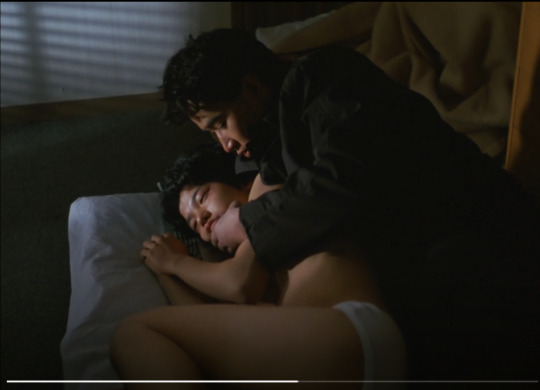
The film seems to create a lot of tension between Shigeyuki (The one being tutored) and Yoshimoto (the tutor), and puts the audience at unease with it. We feel like something wrong is about to happen, but it never does. It subverts our expectations of perversion and shows Yoshimoto doing what he came there to do (albeit with his own unique style). We get to see how Yoritomo teaches Shigeyuki to put in the effort, and we watch as his grades and relations with people from school changes. We get to watch Yoritomo help dig Shigeyuki out of the metaphorical grave he dug for himself. We even see Yoritomo going out of his way to alter Shigeyuki's life in ways that aren't required of him. While he is Shigeyuki's tutor, he isn't being payed to teach him how to fight and defend himself, and yet, he does. I feel like its these aspects of the film that really draw in its audience. The humor brought about from unease and subverting ones expectations in conjunction with the wholesome quality of actually making a difference in Shigeyuki's life, a character of whom we can relate to. We enjoy when Shigeyuki succeeds and changes under Yoritomo's guidance.
This film also dives into the all too common disconnect between parents and their children. In the movie Shigeyuki wants to go to Jingu high, the inferior high school. When pressed for why, he comes up with a bunch of excuses like "its a fine school" and "its better to be the top of a bad school, than the bottom of a good one". His parents, especially his father, is completely baffled with this and doesn't understand why he is content with mediocracy, but Yoritomo breaks through this barrier as well. He pesters Shigeyuki and eventually rips it from him, breaking through in a way his parents were either unable or unwilling to.
Finally the film breaks down a bit in a couple of places just for comedic effect. Yoritomo and Shigeyuki end up having a slapping contest where every time Shigeyuki deflects or retaliates, Yoritomo looks upon him like a proud father, only to continue the "duel". What good this does either of them is beyond me, but it's funny, and a little ritual created between the two of them. Additionally there is a scene where Yoritomo is eating at the dinner table and just completely says goodbye to any manners throwing food around and even physically fighting with Shigeyuki's family. It helps to bring comedic effect to the film and creates an overall feeling of contentment and joy within its audience.
2 notes
·
View notes
Text
Evolving to Go Back into the Ocean: On the Fantasy Genre
In a week or two I plan to begin writing an epic fantasy story that I'll release serially, probably starting in August. The path to developing the idea for this story was long and unusual, so I thought I would talk about it a bit, as well as my thoughts on the fantasy genre as a whole. Fantasy is not a genre I am an especial fan of. I have read, watched, and played fantasy media in various forms, but I wouldn't consider myself particularly enamored with fantasy in particular. As such, my perspective is probably quite different than people who have totally immersed themselves in fantasy as a concept.
Over a decade ago, I had an idea for a fantasy story where the characters would come to learn that they were characters in a fantasy story. The author of this story, Ian West, was desperately trying to write the final installment of a successful trilogy, under pressure from his publisher and his agent Maximillion, but the characters would grow resentful of their roles and start to act "off script." The concept was similar to the film Stranger Than Fiction (a film I resented because I only learned about its existence after I came up with this idea). The desperate author would try to guide the story to its intended conclusion despite the unruliness and outright rebellion of its principal actors.
Enamored with metafiction at the time, I came up with an onslaught of ideas for how Ian West and his characters would interact. I had big, bold plans: an unintended incident would leave most of the main characters dead or missing halfway into the story, and the author would frantically attempt to cobble together a cohesive plot by ascending what had until then been minor background characters into leading roles. I thoroughly developed this idea and even attempted to write it five or six times.
The problem was I could never get far. For me, that was unusual; I'm usually good at finishing stories that I start, and this was a story that I was particularly excited to write. I wasn't even sure why I wasn't able to finish my drafts at the time. In retrospect, though, it's pretty obvious.
All of these subversive, metafictional ideas that I was so excited about necessitated that the actual story without those elements be as generic as possible—you can't subvert audience expectations without operating on a baseline level of audience familiarity with what you're subverting. And so in the early parts of the story―prior to all the big twists I had planned about the author, the ascended minor characters, and so on―I was trudging through a bog standard fantasy tale that I had absolutely no interest in writing. I would be both bored to death describing a big fantasy war with a hero and a dark lord and also unhappy with what I was writing because I felt it was dry and lifeless as a byproduct of my boredom.
As I started over again and again, I progressively attempted to limit the size and scope of those early parts. I pushed the author reveal forward and forward until I was basically writing half of a chapter of "typical fantasy" before pulling the rug. And yet skipping directly to what I actually wanted to write didn't make anything better, because now the big twists weren't twists. They were just the premise. There was no way to convey that the story was "going off the rails" from Ian West's perspective other than simply saying it. The minor characters who became major characters were just major characters from the beginning of the story.
So I never wrote the story. Years passed.
Writing Modern Cannibals I needed a fantasy author and an agent, so I repurposed Ian West and Maximillion to that end. MC wound up being more relevant to Ian West's story than just that, however. In earlier drafts of MC, I coincidentally encountered a similar issue to the one I had with Ian West, although in a completely different context. In these drafts, Z. was obsessed not with Faerie Endless, but with a game called Gryffonquest, which I depicted as an utterly generic JRPG similar to Dragon Quest. The problem was it was difficult for me to write about someone being so passionate about something so boilerplate. The elements of Z.'s fandom were constantly dry and banal, and I was never happy with how I depicted her in that context.
Around this time I saw a video called "How to Recognize a Terrible Anime (in just one episode)". The video was about the JSDF propaganda isekai, GATE. While the video's complaints about GATE's first episode were numerous, one of the first points was about the main character's otaku fandom for a generic, Dragon Quest-inspired JRPG. The video posited that by making the character so passionately a fan of something so boring, it made the character seem boring too.
I think I would actually delve a little deeper than that. It's not necessarily that it makes the character boring. People can relate to a character who is obsessed with a piece of fictional media, even if the particular media they're obsessed with isn't interesting. That's how relating to a character works, it's never a 1-to-1 "this is exactly me" type of situation. I think the main problem is that by putting almost no passion into the piece of media that the character themselves is passionate about, the author is in some way being dismissive or insincere in their depiction of the character. It's glib, even condescending in a way, evoking the concept of an otaku without being earnest about believing in it. Reflecting on my own Dragon Quest-obsessed otaku character, I found that was at least the case for my perspective on her. In those earlier drafts I wasn't just disengaged from Z.'s boring fandom, but I looked down on Z. herself. I was emotionally distanced from her, because she was passionate about something that I was desperately uninterested in. It made it a challenge to write her in an authentic way.
For the final draft of Modern Cannibals, I changed Gryffonquest to Faerie Endless, gave it a more unique aesthetic, and interjected offbeat oddball twists like "everyone goes to Hell" (thank you for the inspiration Final Fantasy II and Super Paper Mario) that made it seem like something for which someone really would have a niche but fervent passion. In fact, probably my favorite part of MC to write was the description of the game's plot. Making that change, I was able to more earnestly depict Z.'s obsession with the property, and thus more earnestly depict Z. herself, making her a significantly more effective character than previous drafts. (I would take this approach to the fictional properties in CxC, too.)
Modern Cannibals does not describe Ian West's stories in as much detail as Faerie Endless, but I did drop a few lines in there that painted his work as a gruesome, adult dark fantasy series that gave it a bit more dimension than a completely generic fantasy. With that buzzing around in my head, I revisited my earlier idea of a metafictional work featuring Ian West, this time with the (perhaps obvious to everyone except me) idea: "What if the fantasy world WASN'T generic?"
I started coming up with more unique ideas for the fantasy world. The main character went from a generic hero to a morally-ambiguous philanderer who began the story by being exiled from his community for cheating on his wife with the mayor's maid. Instead of a standard medieval European fantasy world, I developed a world modeled on colonial America, with muskets and hunter-trappers and Age of Reason philosophers and firebrand revivalist preachers. A world that was as of yet untamed by man, without grand castles or kingly lineages, where (taking cues from the transcendentalists) capital-N Nature was a wondrous and brutal thing and the true power over the realm.
It was a world I at least thought was cool. A world I was eager to write. Only I discovered a new problem instantly.
The subversive elements that were fundamental to the plot were now a betrayal rather than an exciting twist. If you actually LIKE a fantasy story, want to see where it goes, care about the main character, how are you supposed to respond to a big metafictional twist that causes the story to "go off the rails" and random background characters to replace the main cast?
My subversive metafictional twist was dependent upon the reader not caring too much about what came before the twist. But not caring about what came before the twist made me incapable of writing it with enough earnestness for the twist to work, either.
So why not eliminate the metafictional elements entirely? After all, that stuff's all been done in Stranger Than Fiction anyway. Just write a non-meta fantasy story with a cool world. But when I try to envision the story in that light, I start to wonder what the point is.
Fantasy is by far the most escapist genre of fiction. Science fiction is the only genre that comes close, but even then the genre is often overtly speculative in nature, depicting possible or theoretical avenues humanity might take in the coming decades or centuries. (There are some science fiction works, like Star Wars, that are in no way speculative, but these works are generally blends of science fiction and fantasy to begin with—science fantasy, as it's called.) Every other genre is generally grounded in the world we live in, and is meant to engage its readers via the portal of a familiar reality, even if a story is set in a fictional location featuring fictional people. Classical myth, for instance, which is in many ways the precursor to modern fantasy, is framed as historical record, the foundation of the culture that produced it, and even the romances of Arthur or Charlemagne follow this blueprint despite how blatantly anachronistic they often are.
But modern fantasy can take the reader to a world that doesn't exist, in a time that doesn't exist, where the rules of reality are not as they exist. (Urban fantasy excluded―which is why until now my fantasy writing has been urban fantasy in nature.) This freedom seemingly allows for endless storytelling potential, but also forces a problem to the forefront: How do you make it matter? How do you make the reader care? People respond better to stories to which they can relate in some way, but in a genre where you are encouraged to eliminate as many elements relatable to human experience as possible, how do you keep them engaged?
The early history of English-language fantasy stories (mainly late 1800s to early 1900s) skirted this issue either by being set in a "lost continent" somewhere on Earth or being basically isekai where a person from Earth travels to a fantasy world. That way, the story was experienced via a fundamentally relatable protagonist, and thus all non-relatable elements of the story were compartmentalized within that framework. As the genre started to develop into its own, however, and there became a cultural consciousness of "fantasy" that was in and of itself relatable to real people, these framing devices became increasingly superfluous. The Worm Ouroboros (1922), for instance, begins with a frame narrative in which someone from Earth travels to a fantasy world (set on Mercury); but both the frame narrative and the Earthling disappear from the story after the second chapter. By Lord of the Rings (1954), it had become commonplace enough for fantasy stories to simply be set in fantasy worlds, without any framing device at all. (Lord of the Rings was not the first English work to do this―that would be William Morris' The Well at the World's End in 1896―but it certainly popularized it.)
My point is that it took a certain culture-wide level of genre-savviness to develop fantasy as a genre to the point of Lord of the Rings, with a fully immersive fantasy world. This isn't even mentioning how the "seemingly endless possibilities" of the fantasy genre were in actuality highly limited to slight deviations from the mythical underpinnings of the culture. Almost all early fantasy in English drew upon one or more of the following: English fairy or folktales, Celtic myth, French chivalric romance cycles, or Norse myth. English culture, language, and ethnic identity itself being a weird potpourri of all of these backgrounds, these inspirations were generally familiar in the English cultural landscape even prior to the earliest modern fantasy works.
As such, authors were able to plunge readers into entirely fantastical worlds that were nonetheless relatable by drawing on relatable cultural myth. And as fantasy as a genre itself became more popular, the general level of cultural familiarity with the subject matter an author could expect their reader to have rose as well. You never have to explain to a reader what an elf is, especially not post-Tolkien; everyone knows what an elf is. And a dwarf. And a dragon. And now we've gotten to a point where fantasy is such a prominent genre that the baseline cultural comprehension of all this utterly fictional stuff has reached levels where it is starting to become an impediment to itself. A lot of elements of fantasy are no longer just familiar, but are taken for granted.
Consider a traditional, Tolkien-esque fantasy story. Although this story is set entirely within an immersive fantasy world with no overt tie to our real world, the main character is a humble provincial fellow, probably one who has never stepped foot outside their little village until the events of the plot kick in and they are forced onto a grand globetrotting adventure. (The first Wheel of Time book, published in 1990, starts this exact way, showing just what a long shadow Lord of the Rings cast over the genre.) This starting point is commonplace but maintains the "fish out of water" protagonist that an Alice in Wonderland-like isekai has, which is necessary for easing the reader into a world utterly unlike their own. Frodo has never seen an elf before, so when he sees one, his reaction is much more aligned with the reaction of the reader than had he simply shrugged and said, "Nothing special."
The problem is that as the fantasy genre has become increasingly ubiquitous and its readers have become increasingly savvy to its techniques, the reaction of the reader to seeing an elf or dwarf or dragon HAS become to shrug and say, "Nothing special." (Admittedly, this was true also for some of Tolkien's readers. One of his compatriots in his fantasy group The Inklings, upon the introduction of an elf character, shouted, "Not another fucking elf!") Tolkien and the forebears whose shoulders he stood upon are now "generic" despite their groundbreaking novelty in their own time, despite innovating an entirely new type of fiction completely divorced from the "real world." And the genre has adapted the way its audience has. Many fantasy stories now will go out of their way to indicate how different their elves/dwarves/dragons are from the Tolkien mold, while others eschew the fish-out-of-water protagonist outright and steep readers immediately into fantasy worlds where elves and the like are treated as nothing particularly special.
As part of a fantasy arms race whereby authors continually try to set themselves apart from the crowd, more and more unique fantasy elements have been injected into the genre, to the point where if you can think of it in even your wildest dreams, it's probably been done in a fantasy novel by now. To be more unique, these elements have strayed further and further from the Anglo-Saxon mythical heritage that underpinned the early English modern fantasy genre, either by introducing elements from other cultural heritages or by introducing complete neologisms. It was this logic that led to me modeling my proposed fantasy world on colonial America instead of medieval Europe.
I recently read Marlon James' fantasy novel Black Leopard Red Wolf (2019), which depicts a fantasy version of ancient Africa instead of ancient Europe. Although I'm not sure if I liked the novel on the whole, it was undoubtedly a creative and unique experience compared to my understanding of the genre. I have no doubt I could write my colonial America fantasy novel with a similar level of creativity and uniqueness and put forward a work that stands out among the genre as a whole. But then I look at the wuxia genre, or the onslaught of anime and manga set in a fantastical ancient Japan, which have themselves reached a level of genre saturation on par with medieval European fantasy thanks to the gigantic Chinese and Japanese pop cultural spheres. I think: Is this just another element of the fantasy arms race? Mining the whole of human culture until every cultural tradition has been done to death within the escapist non-real template of fantasy? And then what?
For a look at the "and then what," you can jaunt on back to the Western fantasy sphere and see what's successful now that the genre has become so saturated even people who aren't media poisoned are sick of it. Consider the recent explosive success and influence of George R. R. Martin's Game of Thrones, in which fantastical elements are downplayed in favor of a more "realistic" or "historical" setting. Game of Thrones is a cultural juggernaut thanks to the HBO adaptation, but even in the more niche world of fantasy literature, you can look to the popularity of Brandon Sanderson, who takes fantasy elements like magic and presents them in a more science fiction-like "speculative" way, with complex logical rules. Essentially, fantasy is now striving to get closer and closer to the "real world" it initially broke away from.
Western fantasy evolved to leave the ocean, and after being on land long enough to get tired of it, is evolving now to go back into the ocean.
It's conceivable that in a decade or so people will be sick of the Game of Thrones or Sandersonian style and suddenly you'll see a renaissance of Tolkien-esque high fantasy―evolving to go back on land. Rinse, repeat, rinse repeat. It reminds me of the fluctuations in epochs of Western literature; moving from the Age of Reason to Romanticism to Realism to Modernism to Postmodernism to Post-Postmodernism, a constant cycle between more "realistic" modes of writing and more "unrealistic" modes of writing, each mode arising out of boredom with whichever mode came before.
To write something that isn't just part of the current wave or a pigheaded reaction against it (because if you are simply trying to do the opposite of what everyone else is doing, you're as beholden to the zeitgeist as anyone else)―how do you do that? As I thought about it more, that was the core problem facing me whenever I set into my head to write a "fantasy" story at all. So I decided to stop trying to write a "fantasy" story and just try to write a story. That happens to have fantasy elements.
I'm far more confident in my plan now. Writing serially will lock me into my plan, so it'll be up to me to execute consistently on a week-by-week basis without the benefit of a pre-established world like my previous serial works, but what I've got here is exciting. I'm excited to write it, at least.
Anyway, those are my thoughts on the genre. I'd love to hear from someone who has a broader interest in fantasy, who perhaps is more directly familiar with its works and historical trends and specific examples that adhere to or reject the hypotheses I've come to. What’s the best way to write a unique story that isn’t either following the trends or pushing against them? And what is the purpose of fantasy as a genre that is striving to move closer to the “real world” that it initially broke away from? Is it that people are simply so enamored with the idea of “fantasy” as a genre that they will enjoy fantasy stories that are deliberately trying to be unfantastical, or is there some real merit to depicting more real-world themes and topics from the lens of a fictional world?
24 notes
·
View notes
Text
long unstructured uncle jack rant under the cut!! obvious warnings apply
tldr; i'm just really sick of him as a character and i don't see how they could make any of this feel worthwhile from a comedy or serious character development angle (especially what we saw in frank vs russia). it's unfunny, it's lazy, it's thoughtless, it's tactless
idk I'm just kind of sick of Uncle Jack and atp I don't have any faith in sunny as a whole to deal with him in a way that's thoughtful or respectful.
It was one thing when it was all coy “Is he really a paedo or is he just a bit weird?” but outright requesting suggestive images of children??? I’m sorry but what is funny about that? and besides how insensitive and genuinely unfunny he’s been all season, the ice cream truck?? it’s not even so overdone it circles back to funny, cos the whole thing feels so phoned-in. It's the kind of joke we all made in primary school without even the slightest subversion or switcheroo or anything new or interesting or clever. In the same episode, it’s implied that he roofied Charlie as a child. What the fuck.
I never found him particularly funny, but I get how it could be in the same way “the implication” can be funny. But, like the implication, you lose any and all potential for humour when you stop leaving any room for interpretation or plausible deniability. The joke can't be the guy's a paedophile. That's not a joke. And once you take away that plausible deniability, it makes the character unenjoyable. I feel the same way about Dennis and Dee in TUFTG, for example.
Best case scenario, the reason we're seeing him so much is to lead into Charlie confronting his trauma head-on (which he has already been doing ftr) and finding a way to sever ties completely. But even in that scenario, we shouldn't need to see that Jack has a whole operation going on, and have that played (unsuccessfully) for cheap laughs. It is possible for Charlie to deal with Jack in a way that's cathartic or shows development or closes an arc or whatever without spoonfeeding the audience this disgusting shit.
Also, I think we don't need to see Jack outside of Charlie. His character is only important in relation to Charlie. We only care about him in relation to Charlie. and we know what he's done to Charlie (at least it's heavily heavily implied) and its impact. What is the point of showing us MORE of that shit? It provides no additional context. Just feels super lazy and cheap. Literally its only purpose is "haha paedophile funny durrr".
I'm super concerned the whole storyline will end in “Charlie really didn't get abused -- he was telling us the truth the whole time!” as some godawful attempt at subversion since there's been no attempt to subvert expectations re Jack thus far. And how could anyone involved in the writing think jokes like this (executed in the way they are) are acceptable if they're not planning on going somewhere with them?? It feels like it's going somewhere. idk i hope this isn't what's happening but it's what i'm sensing
Also, as a lot of people have said already, there's a common thread between late-seasons Sunny's poor handling of sexual assault jokes and sexual assault/abuse in general :/ Obviously, this can't be placed on one person (especially since we know how involved RCG are in each step of the process), but I think it's interesting to note.
#i'm not explaining myself succinctly but i just don't have the energy to form anything more coherent rn#i'm just really over it. pretty disappointing and frustrating to see the same mistakes (irt addressing sa) repeated again and again#sunny#my post#tw sa mention#tw pedophila mention#tw paedophilia mention#hope those tags r alright and cover it -- please tell me if not so i can fix it
4 notes
·
View notes
Text
Dave Chappelle’s Most Controversial Quotes and Why They Angered His Fans
Jeff LiddellSeptember 18, 2022
The comedy game has changed over the past two decades, particularly in regards to the treatment of touchy topics. Comedians still seldom escape controversy, but nowadays, the criticisms of a provocative joke come from multiple directions. Negative responses to the controversial content of a comedian’s work are just as likely to come from concerned members of groups that have historically gotten the short of the stick as they are to come from the powerful moral guardians that comedy, especially satire, has historically targeted.
The 2000s were especially a decade dominated by edgy, satirical humor that attempted to push the envelope using politically incorrect terminology, imagery, and contexts. One of the most prominent proponents of this approach to comedy to this day is Dave Chappelle.
RELATED: Motivational Quotes to Help You Rise Above
Unsurprisingly for a comic, especially one that uses satire to discuss some of the most sensitive social issues in the United States, especially race relations, Dave Chappelle has faced a lot of scrutiny. At one point, the American stand-up comedian’s program, Chappelle’s Show, was so popular that one of its sketches was blamed on the theft of a city council candidate’s campaign signs.
Despite having united audiences in poking fun at deserving targets like any other successful satirist, Chappelle has bit more than he could chew on several occasions. His trademark seemingly insensitive way of tackling issues has backfired before, and in recent years, appears to have attracted more vitriol.
The Most Famous Dave Chappelle Quotes
Copied
“You know, a lot of different feelings come up when they hear that word. But I’m thinking, is it because black people actually identify themselves as the “N” words? No. I don’t know. Maybe. But what if we just used the word for other people, would it be so bad? I don’t know? So, I made a sketch. It’s about a white family, whose last name happens to be [the word], that’s all. Let’s see how offensive the word sounds now.”
One of Dave Chappelle’s long-lasting schticks is using racist stereotypes to mock them, with the intent of subverting audience expectations. As a Black man, he especially attempts to represent a caricature of what it is like to be a Black American through classic switcheroos. This first quote comes from an introduction to one of the most infamous sketches of Chappelle’s Show, which involves a white family whose surname is the n-word but with an “A” instead of an “E.”
RELATED: 25 Chris Rock Quotes That Are Hilarious But Also Surprisingly Deep
The skit was notable for depicting the white family as other completely stereotypical, complete with a comfy suburban home and a black and white filter reminiscent of old sitcoms. The outlier is their casual comfort with their collective moniker, not even questioning the awkward implications of the way it is spelled and pronounced. The segment itself was considerably more provocative than the introductory quote that preceded it, but Chappelle’s inversion of the n-word had other effects in real life.
Mainly, Chappelle noticed that some white fans were getting too comfortable laughing at the race-heavy humor, making Chappelle ponder on whether some of his white fans are laughing with him or at him. The quote on its own is rather inoffensive, but it mirrors the baggage that came with Chappelle’s style, the same baggage that made him prematurely end his own show despite its astounding success.
“I look at like that word, used to be a word of oppression. But that when I say it, it feels more like an act of freedom, for me to be able to say that unapologetically on television.”
Discriminatory terms have a complicated standing in our world. While it is popular for marginalized groups to reclaim slurs and other derogatory terms, other people, including members of said groups, would rather discard them entirely, believing that they are incapable of being separated from the brutality of their history. Out of these two approaches to oppressive language, Chappelle clearly agrees with the former, and has been consistent about it in his career.
From an interview with CBS’ Bob Simon, this particular quote, once again about the n-word, felt liberating in an era of television that heavily focused on challenging the standards imposed by censors on all networks. To Chappelle as an individual, the appropriation of the n-word was intended as a middle finger to the racism it represents, not an endorsement. However, this quote, and Chappelle’s worldview in general, has been criticized as not having aged too well due to potentially leading to a slippery slope that could depict racism, especially anti-Black racism, with no intentions of challenging it.
There were concerns that due to Chappelle’s success, clueless imitators would parrot his jokes and take them at face value rather than have some introspection. In the end, this quote, similar to the one above, is a precursor to what Chappelle would end up feeling of the work that put him on the radar. Michael Richards’ own racist, n-word-filled tirade would prove the critics’ point, much to Chappelle’s discomfort.
Politically Incorrect and Polarizing Dave Chappelle Quotes
“Hollywood is no place for moral absolutism. You know what I mean? We must never forget that R. Kelly peed on a 15-year-old girl. And he also wrote “I Believe I Can Fly. Same guy, same lifetime. If I showed you that video of him peeing on that girl, and scored it to “I Believe I Can Fly,” you’d be torn. ‘♪ I used to think that I could not go on, ♪ You wouldn’t know how to feel, ♪ If I can see it ♪.’ It’s okay, my career ended many years ago.”
#MeToo is arguably the biggest scandal in contemporary Hollywood history, with the legacy of dozens of actors, musicians, and producers, as well as their works in some cases, forever being tainted after their dark sides were exposed. The Bird Revelation, Chappelle’s special from 2017, discussed the overwhelming cycle of powerful people being revealed as sexually predatory. However, while the special bothered some infamous figures such as Harvey Weinstein, this particular quote is about R. Kelly, whose own issues have been common knowledge for over a decade.
Chappelle’s mockery of R. Kelly was well-received, but polarized some fans due to who it focused on. Aside from R. Kelly himself disapproving of Chappelle’s jokes about him, this quote has been characterized as cheapening what R. Kelly did and shifting focus on the wrong target in a special specifically about recent scandals. According to Neal Brennan, even the R. Kelly sketch from Chappelle’s Show has polarized modern audiences for its irreverent treatment of the singer’s actions.
RELATED: Why Dave Chappelle Walked Away From $50 Million Dollars
“Punched the LBGTQ community, right in the AIDS. Can’t do that. Can’t do that. But I do believe and I’ll make this point later that the kid made a very egregious mistake. I will acknowledge that. But you know a lot of the LBGTQ community doesn’t know DaBaby’s history, he’s a wild guy. He once shot a [guy]… and killed him, in Walmart. Oh, this is true, Google it. DaBaby shot and killed a [guy] in Walmart in North Carolina. Nothing bad happened to his career.”
Closer is Dave Chappelle’s most recent special, and arguably his most controversial work, although in a rare case for Chappelle, the emotional reactions to it were not strictly related to the usual racial themes of his work. In an attempt to criticize the double standards of politeness and what is considered acceptable to condemn by society, Chappelle compares how people individualize and defend racial minorities compared to sexual minorities using DaBaby. Just like Chappelle, DaBaby is a famous Black man that has been the subject of controversy. In DaBaby’s case, he came under fire for homophobic comments.
However, as the quote points out, he also got away with shooting and killing other people in public. Chappelle highlights the contradiction by characterizing it as people being too sensitive about words and too desensitized to violence, but several fans did not take them lightly. Among other things, Chappelle’s comments were seen as hypocritical due to their inability to see the parallels between homophobia and transphobia affecting LGBT people and how racism affected Chappelle’s own life as a Black man, a central theme of his comedy.
The quote also faced backlash because of how dismissive Chappelle appears to be about LGBT struggles and how unwilling he was to condemn DaBaby’s reactionary comments beyond calling it a “mistake.” Additionally, while many agree that gay, bisexual, and transgender people are not exempt from partaking in bigotry even with all the discrimination they themselves face, detractors of the joke thought of it as sloppy in execution. To them, the joke is a more bloated version of the self-admitted risks that come with Chappelle’s work, only much easier to misinterpret.
“I’m team TERF. I agree. I agree, man. Gender is a fact. You have to look at it from a woman’s perspective. Look at it like this, Caitlyn Jenner whom I have met, wonderful person. Caitlyn Jenner… was voted, woman of the year. Her first year as a woman. Ain’t that something? Beat every bitch in Detroit. She’s better than all of you. Never even had a period, ain’t that something? [laughter] I’d be mad as shit if I was a woman. I’d be mad if I was me. If I was in the BET awards, sitting there and they’re like “And the winner for [black man] of the year… Eminem.”
This quote is an embodiment of Chappelle’s current position in the entertainment landscape. In the current culture way, Harry Potter creator J.K. Rowling has become one of the most polarizing celebrities for her own comments about gender, womanhood, and trans people, particularly trans women. This led to numerous people, especially Harry Potter fans, feeling betrayed and disappointed.
As her pseudonymously published new novel shows, Rowling stubbornly puts this issue at the center of her public persona. Having always appreciated the idea of free speech and never a stranger to inflammatory content, Chappelle felt compelled to defend Rowling on Closer, attracting both Rowling’s current supports and her critics. Similar to the controversy with Rowling, the above quote left many fans disappointed with Chappelle.
RELATED: 5 Interesting Facts About Dave Chappelle’s Wife, Elaine
The open affiliation with the term “TERF” (trans-exclusionary radical feminist) despite knowing what the term means and the comparison of trans people to blackface through the Eminem reference were people’s main problem with this particular Dave Chappelle quote. People that disapproved of the jokes lambasted the comments as socially irresponsible and claimed that they fueled even more negative sentiments toward a group that already faces heavy prejudice. This quote is the infamous part of Closer, and will likely define Chappelle’s contemporary career in the next years.
Inspirational Quotes From the Comedy Legend
Chappelle isn’t known only for his incendiary remarks, the comic also aims at improving one’s self, watching for Hollywood pitfalls, and overcoming failures. Perhaps his biggest, most inspirational quotes come from his ability to see ‘magic’ in what he does and how it can bring people together.
“You know, be able to do something great in your life, you’re gonna have to realize your failures. You’re gonna have to embrace them and figure out how to overcome it.”
“The hardest thing to do is to be true to yourself, especially when everybody is watching.”
“I just always loved stand-up. It’s like magic. You say something, and a whole room full of people laughs together. Say something else, they laugh again. The fact that people come to see that and participate in that… I don’t know, it’s just like magic.”
As these quotes suggest, Chappelle went from being worried about how his edgy comedy would attract the wrong people to intentionally stirring the pot for the sake of it. A quote on success that he once preached indicated that not having “the right people around you” while moving “at a million miles an hour” can make you lose “yourself.”
These modern quotes show an insistence at rushing into an issue without knowing the full context. Chappelle is clearly still able to provoke, but as the responses to his latest special show, some fans believe that he is regressing into a state of being edgy just to be edgy. Chappelle will remain successful, but his audience may likely change.
KEEP READING:
25 Conan O’Brien Quotes and Jokes That Will Brighten Up Your Day
4 notes
·
View notes
Text
Something about the way Aang’s character design within the cast of ATLA can be most easily read as a white male but his narrative is actually most aligned with the experiences of colonized and feminized subjects! Meanwhile many of Korra’s features suggest some of the most marginalized people within our world, but her narrative is about acknowledging her privilege! She has to let go of her belief that she is the hero of the story just a because of her association with Aang! I think this dynamic can reasonably rub some viewers the wrong way, but it’s also honestly just so fascinating!!! And I think it can be read in more thoughtful ways!
Cuz, like, Korra’s story is the complete opposite of a hero’s journey. She and her gang are actually positioned as the villains. They’re just (somewhat) likeable/relateable. Cuz in reality Korra’s a spoiled and strong-arming royal, Asami’s a robber baron, Mako’s a corrupt (read:typical) cop, and Bolin’s an amoral celeb. And besides some of the more explicit allusions to Korra living in Aang’s shadows, all the antogonists from the first three seasons resemble Aang in philosophies, actions and/or visuals. Their goals are more closely connected to heroism than Korra’s. It’s only in the fourth season that Korra has come to a place where she can compassionately see her enemy. And look at how Kuvira both in looks and story parallels Korra.
Korra’s mom in the second season says something along the lines of ‘these things started before you were born. you can’t expect to undo them in a day. this situation might be out of your control.’ And I think that’s the theme of the entire series. The world is big, it’s problems are immense and tangled, and they often derive from Good. The show critiques one’s assumption of and attachment to their own sense of moral righteousness. Korra has to continually learn to accept her own powerlessness, to surrender to movements that are bigger than her and to acknowledge her own darkness.
It feels somewhat strange and discomforting to watch a queer brown woman suffer so much because of her privilege. In our world, at least at a broad level, these are the people who more often lack agency and fortune. It’s challenging to a lot of contemporary discourse around representation. LoK requires us to view from a different part of ourselves than most epics and fantasies. Instead of watching from our experiences of victimhood, we are asked to relate to the characters from our positions of privilege. It might not be your time to save the day, it suggests. That does not absolve us of engaging with and considering social and global issues and how we fit within them. But you don’t have to be the hero of the story to do good. In one of my college classes, the professor would encourage students to ‘step up’ and ‘step back’ depending on how much she had heard from each of them, trying to make the sharing of ideas more equitable. Korra’s arc is about learning that art for herself. When is she truly needed? When is it alright for her to simply listen to the world and all the complicated life that’s everywhere singing?
#legend of korra#LoK#atla#lok meta#there’s so many things i don’t love about LoK#but i can’t think of another show that even attempts this#especially one that completely subverts its audiences expectations this way!#aang#korra
927 notes
·
View notes
Note
Hi :D do you think that any characters beside Naruto (gay or bi? I'm not sure about this one) and Sasuke could be LGBT+ inside original manga? Or at least coded so. Orichimaru is canonically non-binary. I had a hunch Itachi and Sasori were aspec coded (especially Sasori). I'm curious about what do you think
Hi.
I think Haku is LGBT+ coded. Kishi has shown him dressing up in a feminine manner, and has drawn him with makeup. Naruto at first thinks of him as a girl until Haku corrects him. He is also shown to regard Zabuza in a more intimate way than would be expected of a mentor student relationship, even within Naruto universe.
Sai. His relationship with Shin seems to be intimate, even though he calls him a brother, but then Kishi made it more than clear that he doesn't understand what the implies. They are both true orphans, just like Naruto, who also wondered if Sasuke was like a sibling. Also, Sai talks about looking at Shin's penis, this is too out there for brothers, bit Kishi makes sure to have Sai say it out loud. He was written as a replacement of Sasuke who is clearly gay, and Sai's relationship with Naruto is also affected by that, extra points for him looking like Sasuke and dressing up quite like Sasuke as well. In the sense, noticeably provocative and the angles Kishi chooses to draw them in also look like he wants their provocative design to look as effective as possible. The audience's gaze is immediately drawn to Sasuke's open chested shirt or Sai's exposed midriff. He also keeps commenting on Naruto's private parts, which is again funny, but Naruto 's response is always too dramatic. Says something about both. It's also amusing how Kishi wrote a few scenes where he makes Sai thinking of women (Sakura and Ino) as displeasing to look at. He of course does it under the garb of comedy, like usual, but it totally pans with how Kishi depicts Sasuke and Naruto's sexuality. Kishi's general approach is to use female characters to say something or give some information about the characters such as Naruto, Sai and Sasuke with either an interaction or a passing comment. So the characters probably won't say or do anything that seems dubious on their own, but Kishi will create situations where the above characters will say something or do something in response to the women. Which is understandable since he cannot explicitly say these things in this genre. Hence the red herrings. Kishi is a storyteller. His job is to show, not tell. And show he does. So he has to be subtle about it.
This is pretty consistent with how Naruto behaves towards Sakura. The way he projects his feelings for Sasuke onto Sakura, since it's the only way for him to come to terms with his confusing feelings. Or he would try to react in his hap hazard, confused ways when Minato asks if Sakura is his girlfriend, or the way he backtracks with Sakura when they talk about Sasuke. He also does this with Hinata, the way she confesses to him in Pain arc and he runs to Sasuke right after and confesses to Sasuke with similar words while ignoring Hinata completely. There are many such instances with Naruto, starting from chapter three and remaining consistent.
Sakura and Karin act as Sasuke's female admirers, but Sasuke is shown clearly to not reciprocate. They are both over the top romantic or sexual with him and he gets uncomfortable or really annoyed. Oftentimes, it is also hidden under the garb of comedy, the way Sakura slumps or the way Karin rubs against Sasuke, while Sasuke looks annoyed or displeased. It's all very off putting to me, but clearly shounen has very outdated concepts of generating humor, even if its cultural in some ways. Kishi still manages to subvert all of these expectations. In the sense, those who want to read the surface level are welcome to do so, and those who are more critically inclined, also find their entertainment. It's a win win for both. Which is why Naruto appeals to a whole lot of fans, transcending genres.
I can't say that about Itachi or Sasori because I don't see anything that indicates towards it. I don't think Kishi wrote them with their sexualities in mind, as in exploring them. Also depiction (and understanding) of asexual spectrum is relatively new in popular media and I doubt Kishi knew what it meant when he was writing Naruto.
I also think Gaara has romantic feelings for Naruto, and Hashirama and Madara 's relationship also looks suspect, but their sexualities are not something Kishi pointedly explores in the manga. It is only implied through their relationships.
#ask#naruto#narusasu#sasunaru#sai#haku#uzumaki naruto#uchiha sasuke#anti ss#anti nh#gaara#hashirama#madara
118 notes
·
View notes
Text
OKay okay okay so I’m here to talk about yet another way XWP blows my mind by subverting narrative tension - and in the gutsiest, yet completely unobtrusive (and therefore completely underrated!!!) way after going to all the trouble of establishing the vision and Xena’s terror of it in early S4.
Just to recap - we first see the vision (or rather, Xena first sees the vision) in Sin Trade II (4x02), where it’s Alti’s worst gambit to try to psychically kill Xena - bc nothing could give her more will to live than the sudden revelation that Gabrielle is alive. Not even the fact that Gabrielle is dying in said vision. That’s a problem for another day.
We spend the next few episodes dealing with getting Gabrielle back (alive!!) and the show back to a new baseline - six whole episodes, blissfully vision-free. But then, abruptly in Crusader (4x08) - bam, there’s the vision again. Xena looks shellshocked in the aftermath, bowled over for the first time by the implications of a future Gabrielle being staked to a cross by Roman soldiers with her love for Xena on her lips. The entirety of Crusader is about Xena’s attempt to subvert that vision while keeping it secret from Gabrielle. And she’s still desperate enough in the end about keeping it secret that this amazing exchange happens:
XENA: Did you tell [Gabrielle] about the vision?
NAJARA: No. That would hurt her, and I don’t ever want to do that. That’s your job.
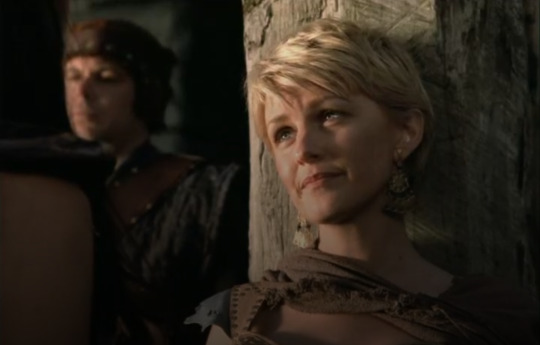
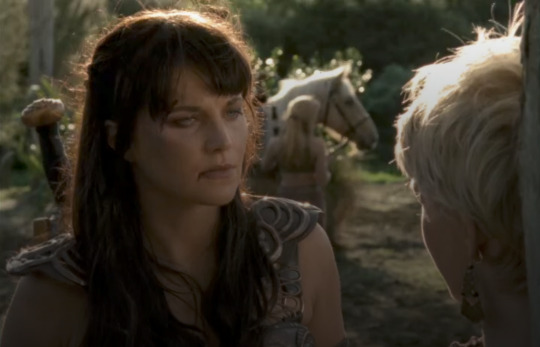
And so given the sudden attention to and emphasis on the horror of the vision - flipped suddenly on its head from the triumph and elation it initially represented - you expect a few more episodes at least where the main tension is how Xena is trying, while knowing ultimately that she’ll fail, to keep Gabrielle in the dark about it. Heck, I think the temptation for a lot of storytellers would be to drag out that tension to the bitter end, until the moment before the vision became inevitable. From a less meta perspective, I think the temptation for Xena until very, very recently would have been to do exactly this too. And so we the audience are trained in several ways to expect everything that doesn’t happen.
Because the next episode opens on the vision - but then immediately fades in on Xena and Gabrielle discussing it. No build up, no teasing, nothing. Just straight from that terrified did you tell her about the vision? to the immediate realization that Xena just told her about the vision herself. And offscreen!!
I’m obsessed with this choice! I’m obsessed with how quietly it was made, off camera, out of the story, no emphasis on Xena angsting about whether or how to tell her, no emphasis on Xena even making the decision to tell her. Just - here’s the vision, and here’s Gabrielle calmly asking Xena if she’s sure that Gabrielle is dying in it.
Because this is where their relationship is now! And it’s glorious! And it would have been so, so, so incredibly easy for them to have rehashed “Xena keeps a secret in the name of protecting Gabrielle” from S3 and the Rift, but they not only resist doing so - they make a point of doing the complete opposite. Bc both Xena and X/G’s relationship is so far beyond that now.
I’m also struck so much rewatching this season more intentionally how much it is a tragedy in the classical sense of it - and how apropos for this superficially silly show set in and drawing on ancient Greek myth and storytelling convention. Gabrielle spends the entirety of the first episode she knows about the vision railing against Xena’s fatalistic attitude toward it. “I can’t afford to believe in your vision!” she finally tells Xena, saying either she’ll prove Xena wrong and they’ll live or Xena will prove her wrong and they’ll both die, but either way, she’s not going to live as though her death is fixed, not even out of loyalty to or concern for Xena.
Which is the real tension of the season! i.e. how the choices Xena and Gabrielle make with full knowledge of what’s coming for them, whether they fully believe in it or not, will inevitably lead them to their deaths.
And my God! It’s automatically so much more interesting than Xena trying to keep things from Gabrielle! The choice to lay everything out in the open and deal with it, messily and with conflicting worldviews and opinions but always with the agreement of what the biggest thing at stake is - their relationship - is just so bold. I can’t get over the choices this season makes; I can’t get over the ways it chooses to keep upping the stakes; I can’t get over how revolutionary it feels to see this on popular programming, let alone between two women.
@neornithes I know you have thoughts too adjacent to these eps if you wanna add on! (Also y’all go read all her fic but especially relevant, this one.)
#xena#xwp#my meta#ahhhhhhhhhhhhh s4 s4 my love#will i ever stop finding writing lessons in you? i hope i never do
308 notes
·
View notes
Photo
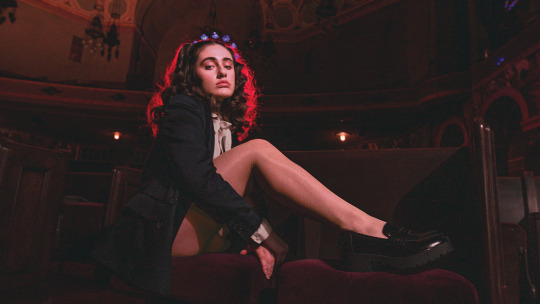
Chaotic Bisexual.
Shiva Baby writer-director Emma Seligman tells Ella Kemp about expanding her wildly cringey short film into an even more anxiety-inducing feature, why Virgo and Taurus make the perfect producing pair, and the eternal conflict of being a good Jewish girl.
“If I can skip a bris to see E.T., I like movies!” —Emma Seligman
It sounds like a strange riff on a guy-walks-into-a-bar joke: a girl walks into a shiva and bumps into her secret ex-girlfriend, then her sugar daddy, then his shiksa wife, oh, and their baby—yet the payoff is so much more rewarding.
Filmmaker Emma Seligman’s debut feature is a new kind of teen classic: 78 non-stop minutes teeming with well-drawn traits and tropes that define the best coming-of-agers, the best Jewish comedies and the best day-in-a-life psychological roller-coasters.
Shiva Baby began as a grad project—a short film of the same name—and Seligman’s feature-length embellishment impressed at last year’s virtual editions of SXSW and TIFF, where it was quickly snapped up for international distribution. In a way, Shiva Baby was perfectly tailored to the times we were living in: Danielle, our reluctant heroine, is trapped in a claustrophobic family event she can’t escape, as people from her past and lies about her future make their way deep under her skin.
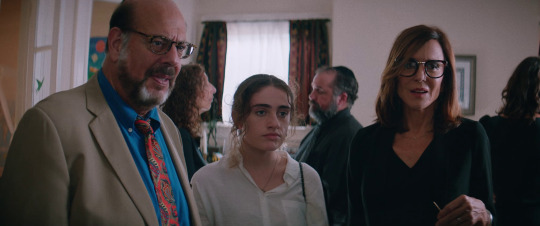
Fred Melamed, Rachel Sennott and Polly Draper in ‘Shiva Baby’.
Shiva Baby is very much the product of a wry school of emerging filmmakers who understand excruciatingly mundane horror and pin-sharp comedy as intimate bedfellows. Seligman’s writing finds a way to flesh out gloriously caricatural Jewish relatives, probing and overbearing and irrational. She does this both through dialogue and a visceral, haptic aesthetic that lurches in and out of focus visually, and has a nails-on-chalkboard unease sonically.
Coming in hot with a 4.01 average rating, Shiva Baby is striking all sorts of discordant notes with film lovers. “Combines some of my biggest anxieties: being asked if I have a boyfriend as well as what my plans for the future are and people talking with their mouths full,” writes Muriel.
The film’s “bisexual chaos”, which hinges on a haywire performance from Rachel Sennott as Danielle, opposite Molly Gordon’s overachieving ex-girlfriend, Maya, is also one of its great strengths. Glee star Dianna Agron is the shiksa threat, Kim, while Danny Deferrari is Danielle’s hapless benefactor, Max. If that’s not enough? Polly Draper, Fred Melamed and Jackie Hoffman are also just there.
What do you think defines a Jewish sense of humor?
Emma Seligman: It’s morbid usually, and darker—generally uncomfortable and cringeworthy. I think about Curb Your Enthusiasm or Seinfeld, and A Serious Man. It borders on, “Is this funny at all?” I think Jewish humor leans into the darkly funny British sense of humor. I’m Canadian, so I feel like I’m halfway between the UK and the US in terms of their sense of humor.
Was it always your intention to make a comedy that feels like a bit of a nightmare? You’ve mentioned Black Swan and Opening Night as touchstones…
Because I came from a short film, the question when expanding into a feature was, “How are we going to keep everyone interested in this day?” It’s got to be a significant day, it’s got to be that this young woman’s life has completely changed from this day. So what is it that changes? Why are we watching it? I watched a lot of movies that took place in one day, one of them was Trey Edward Shults’ first film Krisha. And then from there I realized that anxiety and this scary psychological feeling is a great way to have the audience stay there.
I watched Opening Night because there’s a shiva in it, but it was more the lobby scenes that were so claustrophobic and tense. And then each step of the way with each department, we were like, okay, it’s gonna be tense, but then we got to music, I was like, okay, this has become a full nightmare. Initially, I was just like, it’s got to be tense, but by the end, I was like, well, it does feel like a nightmare to a young woman sometimes.
Because you mention that, I have to ask whether you’ve seen Bo Burnham’s Eighth Grade?
I have, it’s incredible. It’s so funny, they’re both coming-of-age [films], and one of them is about a fourteen year old and then the same sort of feeling exists when you’re 22. When you’re fourteen is when it begins, and when you’re 22 you’re sort of at the end of it and you’re like, “Oh, I thought I figured out what I was supposed to do when I started feeling insecure this way at fourteen about sex and boys.”
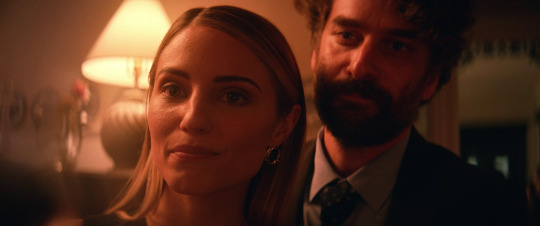
Diana Agron and Danny Deferrari in ‘Shiva Baby’.
Let’s talk about Rachel Sennott, who you have describe as your “Virgo rock”. What do you bring one another in your creative partnership?
She’s a hustler, and she sets goals like nobody else. I think she moves very fast, and I’m more detail-oriented. I don’t know if the movie would have happened without her because she was like, “What are the goals to achieve this film?” After we made the short film, she just kept checking in with me. She goes well beyond what an actor does, which is why she’s an executive producer, because she was very, very invested in seeing the movie get made.
I think she pushes. We joke that she brings me out of my depression and I help calm her down. I feel like Taurus is a little more chill. Virgos are also earth signs, but they run on a faster frequency. So I think I calm her down, especially when we’re writing and bringing it back to structure. But she’s way funnier, she’s able to give jokes so quickly. We balance each other perfectly, for sure.
Do you think your partnership with Rachel is the kind of partnership you could see yourself maintaining throughout your career?
Definitely. I think it’s important to have a good friend and also a young woman. She’s got different career goals from me, but they’re aligned. And we’re not in competition with each other. I feel so grateful because so much of the time I feel like the world does make you feel like you’re in competition with your friends that are trying to do the same thing as you when you’re a young woman—or just maybe in general.
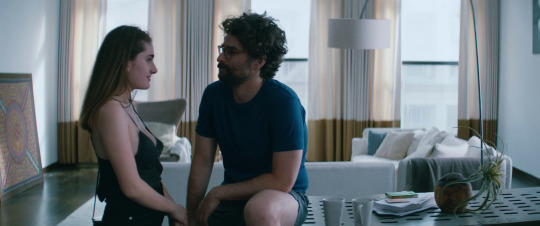
Rachel Sennott and Danny Deferrari in ‘Shiva Baby’.
Her character in Shiva Baby completely subverts the idea of a “nice Jewish boy/girl” which can be a trope in movies, but also very much a real thing in life. Is that something you consciously wanted to subvert, or did it come organically from the story you wanted to tell?
I wanted to contrast that idea of a “nice Jewish girl” because every nice Jewish girl or boy has a sex life. I felt the sort of nice Jewish girl stressors on me were completely opposite from the NYU art school sugaring worlds, and hookup culture broadly. My family is such a huge part of my life and I think that those two sets of pressures are completely contradictory; to be a good girl or boy and have a stable career ahead of you, and to be finding, even if it’s at the very beginning, your eventual partner, or to just be in a relationship. And I felt like in school, no one wanted to date, everyone was hooking up. So many of my friends are sugar babies. I tried it super, super briefly.
I felt like the world was telling me to be like “an empowered, independent, sexy woman who doesn’t care what anyone thinks of her, and doesn’t abide by any rules”, and I was like, “This is the opposite of being a nice Jewish girl!” And I just felt like those two things were screaming at me. So I did want to play on that. But I don’t even think it’s playing, just because that felt like what I was trying to battle within myself. And I think a lot of young people do, whether they’re Jewish or not. That’s their family’s expectations. And then the world is like, “But don’t care and don’t commit…”
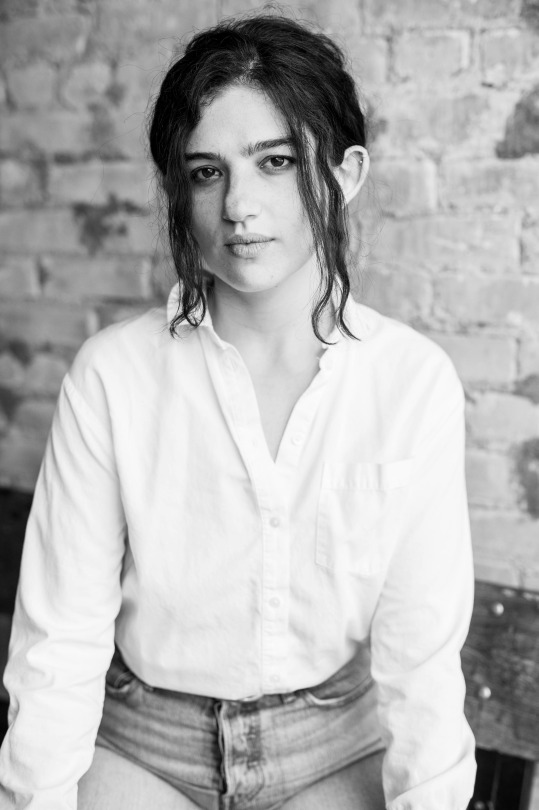
Writer-director Emma Seligman. / Photo by Emma McIntyre
But then you still have to go home to your parents at the end of the day and they’re going to tell you what to do…
Exactly.
What would you want viewers to take away from Shiva Baby about the sugaring community that you feel has been maligned in the past?
I’m not a sex worker, so I don’t want to speak on behalf of this community, but I definitely feel like there hasn’t been many positive portrayals of sex workers. So I just wanted to show someone—because I knew so many friends of mine who did it—who enjoyed it, or purposefully did it and didn’t feel bad or shameful about it. I think maybe a lot of people think that it’s always something that comes out of dire circumstances. But whether that is the case or not, I think there’s a lot of people who enjoy it and enjoy what they do like any other job. So I just hope that they’re able to sort of widen their scope of what a sex worker looks like and acts like. Every sex worker has got a family, friends, a full robust life, as we all do.
It’s time for your Life in Film questionnaire. Can you give me a few must-watch Jewish films for people who don’t know where to start?
Fiddler on the Roof, Yentl, Keeping the Faith, Kissing Jessica Stein, A Serious Man. Definitely Uncut Gems, and Crossing Delancey.
Shiva Baby has been described on Letterboxd, variously, as “Uncut Gems but make it chaotic bisexual”, “the most stressful Jewish movie since Uncut Gems”, “the chaotic successor of Uncut Gems”, “if Krisha and Uncut Gems had a baby”, and, of course, “Uncut Gems for hot Jewish sluts”…
Amazing, I love that. Extremely nice comparison.
Who is your favorite promising young woman? Not Emerald Fennell’s film, but a young creative or performer who you think is making waves.
I love Hari Nef—I think she’s amazing and am really excited to see what she does next. I loved her so much in Transparent and Assassination Nation, and I don’t understand why she hasn’t been the lead in a million movies.

Molly Gordon with Rachel Sennott in ‘Shiva Baby’.
What should people watch next after Shiva Baby?
Those Jewish movies would be a great start. And then Krisha, although I think a lot of people have seen it especially if they’re on Letterboxd! But then those Jewish romantic comedies, and then Obvious Child, all those movies are very sweet and endearing and helped me make it.
Separate from film, if it’s shiva-related then Transparent. If I didn’t have Transparent I don’t think I would have seen world of grounded, nuanced Jews that I could do comedy with. It would have been more in the Curb vein, which is also amazing, but a little more schtick.
What was the first film that made you want to be a filmmaker?
My parents are huge movie buffs so I’m not sure there was one moment, but I will say that when I was six there was a re-release of the 20-year anniversary of E.T. the Extra-Terrestrial and I was at a horribly packed bris and my uncle was like, “Fuck this, there are so many people here, I can’t even breathe. Let’s go see E.T.” That was the first moment where I was like, if I can skip a bris to see E.T., I like movies.
Related content
From Short to Feature: Rob’s list of 2020 films that made the jump
Jewish Cinema (non-Holocaust): Amelia’s list of films “for when u want to celebrate your heritage but don’t want to have to think all too deeply about the Shoah”
Best Directorial Debuts of 2020: suggested by Letterboxd members, featuring Shiva Baby
Follow Ella on Letterboxd
Shiva Baby is now in select theaters and on VOD in the US. Film stills by Maria Rusche.
#shiva baby#emma seligman#jewish filmmaker#jewish director#directed by women#rachel sennott#jewish film#jewish movie#transparent#uncut gems#hari nef#e.t. the extra terrestrial#obvious child#krisha#trey edward shults
88 notes
·
View notes
Text
JACOBIN FICTION CONVENTION MEETING 1: La Seine no Hoshi (1975)
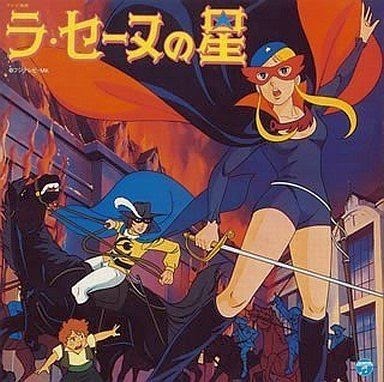
1. Introduction
Well, dear reader, here it is. My first ever official review. And, as promised, this is one of the pieces of Frev media that you have likely never heard of before.
So, without further ado, sit down, relax, grab drinks and snacks and allow me to tell you about an anime called “La Seine no Hoshi” (The Star of the Seine).
“La Seine no Hoshi” is a children’s anime series made by Studio Sunrise. It consists of 39 episodes and was originally broadcast in Japan from April 4th to December 26th of 1975.
Unlike its more famous contemporary, a manga called “Rose of Versailles” that had begun being released in 1972 and is considered a classic to this day, “La Seine no Hoshi” has stayed relatively obscure both in the world of anime and among other Frev pop culture.
Personally, the only reason why I found out about its existence was the fact that I actively seek out everything Frev-related and I just happened to stumble upon the title on an anime forum several years ago.
So far, the anime has been dubbed into Italian, French, German and Korean but there is no English or even Spanish dub so, unfortunately, people who do not speak fluent Japanese or any other aforementioned language are out of luck ( if anyone decides to make a fandub of the series, call me). That being said, the series is readily available in dubs and the original version on YouTube, which is where I ended up watching it. The French dub calls the anime “La Tulipe Noire” (The Black Tulip), which could be an homage to the movie with the same name that takes place in the same time period.
Unfortunately, while I do speak Japanese well enough to maintain a basic conversation and interact with people in casual daily situations, I’m far from fluent in the language so the version I watched was the French dub, seeing as I am majoring in French.
So, with all of this info in mind, let’s find out what the story is about and proceed to the actual review.
2. The Summary
(Note: Names of the characters in the French dub and the original version differ so I will use names from the former since that’s what I watched)
The story of “La Seine no Hoshi” revolves around a 15-year old girl called Mathilde Pasquier - a daughter of two Parisian florists who helps her parents run their flower shop and has a generally happy life.
But things begin to change when Comte de Vaudreuil, an elderly Parisian noble to whom Mathilde delivers flowers in the second episode, takes her under his wing and starts teaching her fencing for an unknown reason and generally seems to know more about her than he lets on.
Little does Mathilde know, those fencing lessons will end up coming in handy sooner than she expected. When her parents are killed by corrupt nobles, the girl teams up with Comte de Vaudreuil’s son, François, to fight against corruption as heroes of the people, all while the revolution keeps drawing near day by day and tensions in the city are at an all time high.
This is the gist of the story, dear readers, so with that out of the way, here’s the actual review:
3. The Story
Honestly, I kind of like the plot. It has a certain charm to it, like an old swashbuckling novel, of which I’ve read a lot as a kid.
The narrative of a “hero of the common folk” has been a staple in literature for centuries so some might consider the premise to be unoriginal, but I personally like this narrative more than “champion of the rich” (Looking at you, Scarlet Pimpernel) because, historically, it really was a difficult time for commoners and when times are hard people tend to need such heroes the most.
People need hope, so it’s no surprise that Mathilde and François (who already moonlights as a folk hero, The Black Tulip) become living legends thanks to their escapades.
Interestingly enough, the series also subverts a common trope of a hero seeking revenge for the death of his family. Mathilde is deeply affected by the death of her parents but she doesn’t actively seek revenge. Instead, this tragedy makes the fight and the upcoming revolution a personal matter to her and motivates her to fight corruption because she is not the only person who ended up on its receiving end.
The pacing is generally pretty good but I do wish there were less filler episodes and more of the overarching story that’s dedicated to the secret that Comte de Vaudreuil and Mathilde’s parents seem to be hiding from her and maybe it would be better if the secret in question was revealed to the audience a bit later than episode 7 or so.
However, revealing the twist early on is still an interesting narrative choice because then the main question is not what the secret itself is but rather when and how Mathilde will find out and how she will react, not to mention how it will affect the story.
That being said, even the filler episodes do drive home the point that a hero like Mathilde is needed, that nobles are generally corrupt and that something needs to change. Plus, those episodes were still enjoyable and entertaining enough for me to keep watching, which is good because usually I don’t like filler episodes much and it’s pretty easy to make them too boring.
Unfortunately, the show is affected by the common trope of the characters not growing up but I don’t usually mind that much. It also has the cliché of heroes being unrecognizable in costumes and masks, but that’s a bit of a staple in the superhero stories even today so it’s not that bothersome.
4. The Characters
It was admittedly pretty rare for a children’s show to have characters who were fleshed out enough to seem realistic and flawed, but I think this series gives its characters more development than most shows for kids did at the time.
I especially like Mathilde as a character. Sure, at first glance she seems like a typical Nice Pretty Ordinary Girl ™️ but that was a part of the appeal for me.
I am a strong believer in that a character does not need to be a blank slate or a troubled jerk to be interesting and Mathilde is neither of the above. She is essentially an ordinary girl with her own life, family, friends, personality and dreams and, unfortunately, all of that is taken away from her when her parents are killed.
Her initial reluctance to participate in the revolution is also pretty realistic as she is still trying to live her own life in peace and she made a promise to her parents to stay safe so there’s that too.
I really like the fact that the show did not give her magic powers and that she was not immediately good at fencing. François does remark that her fencing is not bad for a beginner but in those same episodes she is clearly shown making mistakes and it takes her time to upgrade from essentially François’s assistant in the heroic shenanigans to a teammate he can rely on and sees as an equal. Heck, later there’s a moment when Mathilde saves François, which is a nice tidbit of her development.
Mathilde also doesn’t have any romantic subplots, which is really rare for a female lead.
She has a childhood friend, Florent, but the two are not close romantically and they even begin to drift apart somewhat once Florent becomes invested in the revolution. François de Vaudreuil does not qualify for a love interest either - his father does take Mathilde in and adopts her after her parents are killed so François is more of an older brother than anything else.
Now, I’m not saying that romance is necessarily a bad thing but I do think that not having them is refreshing than shoehorning a romance into a story that’s not even about it. Plus most kids don’t care that much for romance to begin with so I’d say that the show only benefits from the creative decision of not setting Mathilde up with anyone.
Another interesting narrative choice I’d like to point out is the nearly complete absence of historical characters, like the revolutionaries. They do not make an appearance at all, save for Saint-Just’s cameo in one of the last episodes and, fortunately, he doesn’t get demonized. Instead, the revolutionary ideas are represented by Florent, who even joins the Jacobin Club during the story and is the one who tries to get Mathilde to become a revolutionary. Other real people, like young Napoleon and Mozart, do appear but they are also cameo characters, which does not count.
Marie-Antoinette and Louis XVI are exceptions to the rule.
(Spoiler alert!)
Marie-Antoinette is portrayed as kind of spoiled and out of touch. Her spending habits get touched on too but she is not a malicious person at heart. She is simply flawed. She becomes especially important to the story later on when Mathilde finds out the secret that has been hidden from her for her entire life.
As it turns out, Marie- Antoinette, the same queen Mathilde hated so much, is the girl’s older half-sister and Mathilde is an illegitimate daughter of the Austrian king and an opera singer, given to a childless couple of florists to be raised in secret so that her identity can be protected.
The way Marie-Antoinette and Mathilde are related and their further interactions end up providing an interesting inner conflict for Mathilde as now she needs to reconcile this relationship with her sister and her hatred for the corruption filling Versailles.
The characters are not actively glorified or demonized for the most part and each side has a fair share of sympathetic characters but the anime doesn’t shy away from showing the dark sides of the revolution either, unlike some other shows that tackle history (*cough* Liberty’s Kids comes to mind *cough*).
All in all, pretty interesting characters and the way they develop is quite realistic too, even if they could’ve been more fleshed out in my opinion.
5. The Voice Acting
Pretty solid. No real complaints here. I’d say that the dub actors did a good job.
6. The Setting
I really like the pastel and simple color scheme of Paris and its contrast with the brighter palette of Versailles. It really drives home the contrast between these two worlds.
The character designs are pretty realistic, simple and pleasant to watch. No eyesores like neon colors and overly cutesy anime girls with giant tiddies here and that’s a big plus in my book.
7. The Conclusion
Like I said, the show is not available in English and those who are able to watch it might find it a bit cliché but, while it’s definitely not perfect. I actually quite like it for its interesting concept, fairly realistic characters and a complex view of the French Revolution. I can definitely recommend this show, if only to see what it’s all about.
Some people might find this show too childish and idealistic, but I’m not one of them.
I’m almost 21 but I still enjoy cartoons and I’m fairly idealistic because cynicism and nihilism do not equal maturity and, if not for the “silly” idealism, Frev itself wouldn’t happen so I think shows like that are necessary too, even if it’s just for escapism.
If you’re interested and want to check it out, more power to you.
Anyway, thank you for attending the first ever official meeting of the Jacobin Fiction Convention. Second meeting is coming soon so stay tuned for updates.
Have a good day, Citizens! I love you!
- Citizen Green Pixel
#review#french revolution#anime#history#television#frev media#Jacobin Fiction Convention#marie antoinette#French Revolution anime#la seine ni hoshi#la tulipe noire dessin animé#la tulipe noire
25 notes
·
View notes
Text
The Green Knight (2021)
(CONTAINS SPOILERS)
The Green Knight (2021), with its excellent cast and feast of visual storytelling, does cut a pretty trailer, but it’s hardly the adaptation we’ve all waited nearly 2 years to see. Rather on the slow side, there is plenty of breathing room (often to excess), but often feels wanting. The performances are well-played, albeit terribly subdued, which create interludes that feel tedious. Dev Patel has proven himself time and again that he has the capacity to play a nuanced lead, and he does well here, but it is the side characters that break the monotony and steal the show, most notably Joel Edgerton (Lord), Erin Kellyman (Winifred), and Barry Keoghan (Scavenger).
David Lowery’s “adaptation” explores the journey of an untested and somewhat undeserving not-quite-Sir Gawain, a far-cry from our Hero in the text, more akin to Prince Hal. This change adds elements to the character with which an audience might more easily identify, and should make this a coming-of-age tale, as well as a moral one; though, this film fails as both.
As a coming-of-age tale, Gawain never quite gets there, and it almost doesn’t matter if he does, because it's not really his tale at all. Nor is this film about morality, not even as a cautionary tale. Perhaps it's more accurate to call it an instance of ‘careful what you wish for’. Gawain doesn’t seem to know what he wants. Does he really want to be a Knight? Is this about living an honest life or living up to familial expectations, particularly your mother's? Hard to say, as many of the female characters, including Gawain’s mother (Morgause and Morgan Le Fay made one), are treated as mystery elements themselves. It’s also not clear just how far her control extends, if it has any limitations. Is there anything in this world that is true?
Perhaps we'll never know his mother's true intentions; it clearly wasn't for her son to be his own person and make his own decisions. A man simply doesn’t become a Legend without his mother’s entire fabrication of the quest, it would seem. Does Gawain feel so out of place in his own story because it’s already set out for him? Was Morgan Le Fay simply Lowery’s segue for the concept of Legend as a set path for Gawain to follow? But as such, Gawain’s tale of morality isn’t what it seems, as he doesn’t even have the illusion of choice. Or was it all just a journey back to nature, back to green? Lowery never lets us forget just what color matters most here. There’s even a fun monologue about it! Even the design of the Green Knight is just a little too on the nose; his appearance essentially being that of an ent.
About 2/3 of the way through, The Green Knight actually shows a hint of promise, but it is short-lived. In case you haven’t already lost interest with the lengthy side quests; everything turns sour at the arrival of Lord and Lady Bertilak’s castle (simply titled Lord and Lady), and what should be the bulk of our story, the “exchange of gifts” and Gawain’s true test of morality. The “exchange of gifts” is glossed over for a taste of something completely different, as it takes major liberties with not only a core part of our tale, but arguably what’s most memorable about the original. It becomes Lowery’s convoluted vision of a different sort entirely, one where Gawain seemingly refuses to take part in his own story. While possibly an interesting take in itself, it does a disservice to the text, and accomplishes nothing other than an attempt to be shocking.
There’s something richer in the “exchange of gifts” simply not explored in Lowery’s version, or the compulsive need to “subvert”, and the film is poorer for it. How can you even subvert something which you refuse to touch upon? It’s also extremely odd and honestly baffling, that in this day and age, homosexual themes and undertones would be downplayed or outright rejected (as they are here), rather than embraced and explored. Altogether, this omission seems a poor choice and a clear indication that Lowery holds little to no affection for the original text. Disregarding the “exchange of gifts”, the journey becomes something vain and hollow; perhaps intentionally, but doesn't serve anyone, least of all the story.
Following the tale’s example, the girdle (sans the accompanying scar) is the all-encompassing symbol for Gawain’s shame, but Lowery takes it a step further, in which he is so seduced by its promise of protection that he literally soils it with his lust. But this scene is so abrupt at the all too brief “exchange of gifts” (in a film that stretches everything to excess) that it seems to lack consideration and its only purpose is to disturb. The girdle furthermore becomes a symbol of his unearned and unholy life (which we’re shown), were he to continue to fail to accept his fate and his test, although this too seems superfluous. What’s interesting here is that in either scenario, Gawain remains undeserving. He is not especially virtuous, he’s not even decent from what we can see, and has failed in almost every chivalric aspect; after all, he is “no knight”. Even so, in the original, even the Green Knight can’t begrudge his lack of fidelity in this one aspect; “because you wanted to live, so I blame you the less”.
A message of The Green Knight seems to be acting out of selflessness as the only indicator of a truly good deed, with no expectation of reward. This is evident in the dismissal of the “exchange of gifts” and Winifred’s admonishment, "Why would you ever ask me that?", but this message is so muddled within the world of the film, that it’s somehow also completely out of place. After all, Gawain is rewarded in a way, with several of his trappings, which are returned to him after being stolen. Speaking of rewards for good deeds, religious themes are also notably lacking, favoring the pagan angle (as expected of A24), though which is never expounded upon. There is the decision to keep some not-so-subtle imagery of crippled Christianity; i.e Gawain’s shield (with Mary’s visage on the inside and a small pentangle on the exterior) and a cross at the Green Chapel.
Lowery gets too hung up on a confused mix of vague and painfully obvious ideas of symbolism and makes huge, unwarranted leaps. His work here reeks of self-indulgence, to the point of parody. It’s also simply never clear what anyone’s intentions are, his least of all. His ideas are so flighty and changeable that contradictions abound in the finished product (It’s clear why he needed all that extra time to re-cut). The whole thing is so nebulous that it may fool some into thinking it’s beyond their grasp, but it just reads as pretentious. The thing is, The Green Knight tries to be too many things at once, and in doing so, fails at all of them. Lowery lacks the conviction to support anything he presents and has no sense of narrative structure. Simply put, this film lacked proper direction and would have greatly benefited from fresh eyes on the script.
The Green Knight may question 'What is Honor and if it does exist, what is it worth? For even if there comes a time to prove yourself for Honor’s sake, what is it all for? “Is this all there is?”’, but Lowery drops the concept of Honor as soon as he picks it up and chooses to explore Legacy and Legend, and while it leads us on an interesting journey of interpretation, it’s very heavy-handed. It’s also difficult to answer any of these questions because Gawain is simply not worthy of anything. It’s not just that he is imperfect; he is not good and never acts out of selflessness or for the actual sake of Honor. He doesn’t know the meaning of the word. The original text asks us to stay true, true to our word and our values, in uncertainty and despite our fears (as a Good Knight should, and which Gawain ultimately is.) Lowery, on the other hand, begs us to forget the narrative, because he doesn’t know how to do it, and the search for meaning, because there is none. I’m not even sure he knows what he’s made.
Overall, though heavily burdened by its sluggish pace and lack of structural integrity, The Green Knight, at least on the surface, appears to be a somewhat earnest attempt at exploration within the fantasy/horror genre, asking a lot more questions than it answers. But while its visuals may dazzle, it’s a cold and unfeeling thing, devoid of all charm of the original tale, and can hardly be called an adaptation for many of its choices.
Source: https://letterboxd.com/avega007/film/the-green-knight/
(I wasn’t expecting to go off when I just got a letterboxd, but this film left me heated.)
#the green knight#sir gawain and the green knight#david lowery#dev patel#I really wanted to like it#but it disappointed me#spoilers
14 notes
·
View notes
Text
THIS REVIEW IS GONNA BE PRETTY LONG SO FEEL FREE TO SKIP I have nowhere else to unload/unpack everything I liked and hated about the film, which I feel the need to immediately.
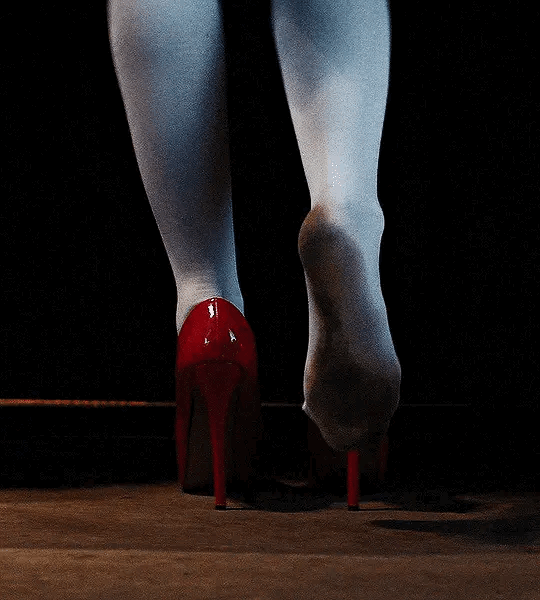
Promising Young Woman was a promising idea given its premise of subverting rape-revenge films, a genre that could definitely use a modernized revitalization given Hollywood's current landscape and movements like #MeToo. I was particularly interested in how it would subvert the genre given that it’s directed by a woman. Whilst I think there are certain strongish elements, it was weak in terms of narrative, characterization, motives and felt like a lukewarm feminist film. Maybe my own expectations of it somewhat holding up to its critically acclaimed reputation hindered my liking as it made it even more disappointing.
The casting was great, making moments feel organic e.g. Cassie's relationship with Ryan, making his appearance in the tape even more shocking. Certain lines of dialogue such as the fact they never even mention the word rape ("we did not, you know...") and "it's every guy's fear to be accused of something like this, wanna guess what every woman's worst fear is?" (or something among the lines of this) is powerful and a clever creative choice. I think moments like these highlight just how ingrained rape culture is, the normalization of locker room chat etc.
This idea of ingrained misogyny and rape culture can also be seen through Maddie McPhee and Dean Walker, both women. They take the side of Al because Nina was drunk, highlighting another key issue within rape culture - no matter what women are always asking for it - she shouldn't have been drunk, it's not his fault. Women have been taught to not wear short and revealing clothing, not walk in alleys at night, not to get drunk/go to parties without friends etc. It's like we are supposed to take responsibility - following this notion of boys being boys.
I love the title of the film, sadly though I think it's one of my favourite things about this (besides the 2-second clip they showed of the iconic 1955 film, The Night Of The Hunter which is never a good sign) as it references the Brock Turner case as he was described as a "promising young man." It throws this notion in the face of the viewers - Cassie and Nina, were promising young women but their futures/goals of working within the medical field were completely shattered by Nina being raped. It also confronts this idea of why are promising young men being protected but not women?This confrontation is one of the film's stronger points in terms of social commentary/what it's saying about these types of cases.
One of the most powerful moments in the film for me was when Cassie watches the sex tape, the audience never sees it but the audio is enough. We see a medium close up of Cassie slowly becoming more and more torn up inside as we hear Al among his friends getting excited by the idea of having sex with Nina. I think a common issue with rape-revenge films like I Spit On Your Grave is how it fetishes the violence and raping and heavily uses the male gaze, making certain points about female empowerment void. I'm glad that the film didn't use this, as it made it an even more emotional moment.
That being said, this film feels like a half baked feminist film, it doesn't subvert the tropes in a particularly interesting or engaging way. I think the choice to of making Nina the one who was raped when she's never seen in the film (besides the odd photos of her) was a weak one. I never felt a connection to her character, something that is extremely crucial given its core messages and themes. It would've made more sense for Cassie to be the one that had these horrific experiences, making her goals and the characters' sympathy/connection with her (and detachment from the male characters) even more concrete and strong.
Cassie's death and the way she punishes the male characters felt extremely weak and disappointing. There was a real opportunity with her encounter with Neale as the film gave us an enigma of the previous man's fate. Instead of punishing them in a way you'd think one would (especially given her past with Nina), she simply scolds them. This feels off considering that the Dean most likely scolded Al in the sense that he shouldn't be at parties but also considering how men are treated for their actions within rape culture. Men are simply given a flick on the wrist for their actions rather than proper repurcussions. The lack of a proper punishment felt like a poor attempt at subverting the genre.
Fennell said in an interview that she wanted a "non-typical or a non-Hollywoood ending" but the ending felt very much like a Hollywood ending. Whilst Cassie does die, she somehow manages to schedule a text to be sent and Al is arrested for her murder (bad guys lose - seems very much like a Hollywood ending). Cassie's death and the way she punishes men is arguably very Hollywood-like - it almost feels afraid to push boundaries with feminism and its messages. Cassie's death made no sense, Al even mentioned how tight the restraints were yet before she could even act out any sort of interesting revenge, she's smothered to death with a pillow. It felt disappointing, the one time she finally got to enact any revenge or when it felt climatic it was immediately stopped.
This is way too long so I'm gonna stop here. Overall, I have a lot of issues with this film (don't even get me started on the white woman perspective/narrative) but I think my one of biggest issues is the way it's been viewed and regarded. Promising Young Woman doesn't add anything new to the table (in my opinion) but feels lackluster, poorly written and like simplified feminism. I was interested to see how a female director would handle such material but I was extremely disappointed in the way it ended.
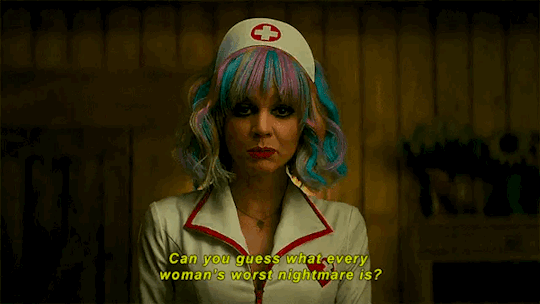
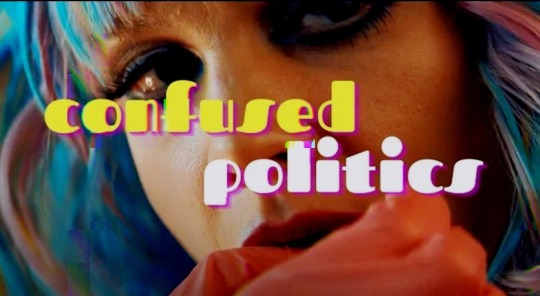
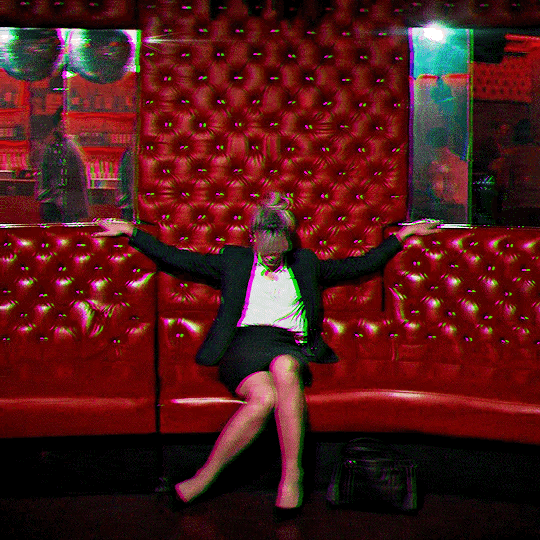
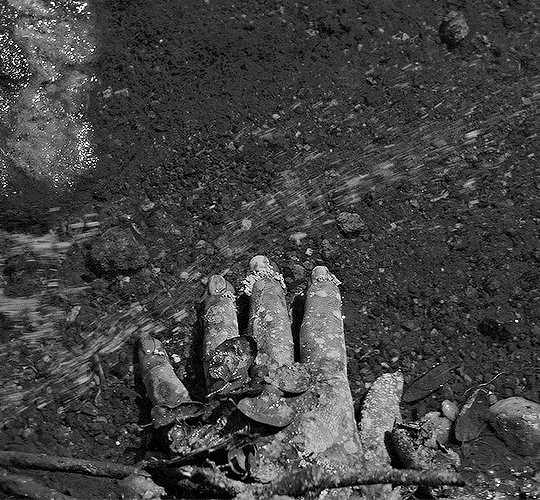
#promising young woman#emerald fennell#carrey mulligan#film#film review#film analysis#film commentary#movies#movie review
13 notes
·
View notes
Text
Final Fantasy IV Review
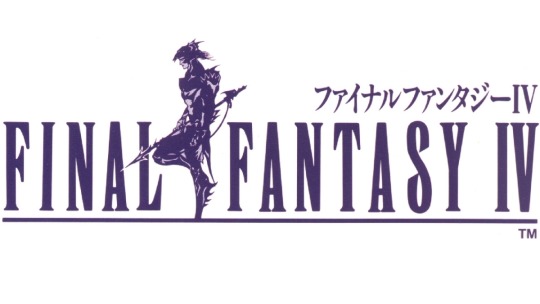
Year: 1991
Original Platform: Super Nintendo (Originally introduced to Western audiences as Final Fantasy II, since the real II and III were not released outside of Japan at the time.)
Also available on: Nintendo DS, PSP (Final Fantasy IV: The Complete Collection), GameBoy Advance, Playstation One (Final Fantasy Chronicles), Steam (DS remake)
Version I Played: PSP
Synopsis:
Cecil Harvey is Batman a dark knight who follows orders from King Baron. The king tasks Cecil and his partner Kain with taking the crystals from the surrounding nations and cities. Cecil questions his king’s motives, leading to the revelation of a grand conspiracy. Cecil then goes on a quest to right his wrongs.

Gameplay:
The novel feature of this game was the ATB system – Active Timed Battle. This means that instead of you and the enemy waiting for your respective turns one at a time, each character takes their turn according their respective speed. One character may be slower than the other, so they will take longer to be able to perform an action. Basically, with ATB, if you wait too long to think about what to do on your turn, the enemy can hit you - JUST AS IF YOU WERE REALLY BATTLING IN REAL LIFE.
While Final Fantasy IV introduced ATB, it did not utilize the ATB gauge in actual battles. The ATB gauge is a visual bar during battle that shows your character’s speed. Whenever it’s filled, your character can perform an action. The gauge itself was first seen later in Final Fantasy V. Later remakes of Final Fantasy IV displayed the ATB gauge. Some configuration options were introduced later to give you the ability to change the battle system to active or wait. Putting it on wait would allow the timed battle to pause while you thought about what to do during your move.
Final Fantasy IV forsakes the customizable Job System and introduces characters with individual jobs. Kain is a dragoon, who can jump in the air and deal destructive damage. Rydia is a summoner. Yang is a monk. Etc, etc.
The Super Nintendo and PSP versions are more or less on par with each other in terms of difficulty. The Nintendo DS remake is really hard. Like REALLY hard. Like “throw-your-DS-across-the-room hard”. I myself have had trouble finishing it.
Graphics:
I haven’t played the original SNES version of Final Fantasy IV, but judging by the images it appears to be in this liminal state between NES and SNES. Not quite NES but not quite utilizing the full power of the SNES either.

The PSP version is somewhat reminiscent of the Anniversary Editions of Final Fantasy and Final Fantasy II, but it still has its own flair that outshines them.

Final Fantasy IV DS is pretty much a 3D remake in the same vein as Final Fantasy III DS, with an awesome opening FMV. The in-game cutscenes however now have VOICE ACTING.
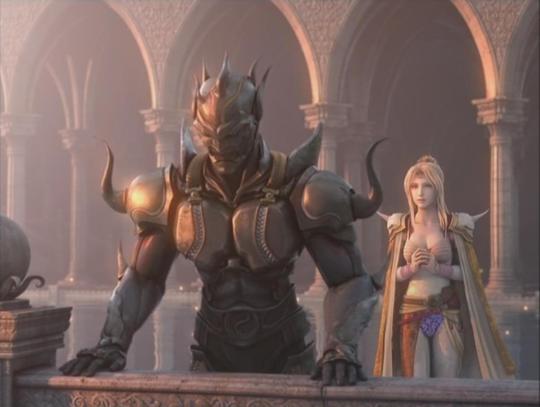
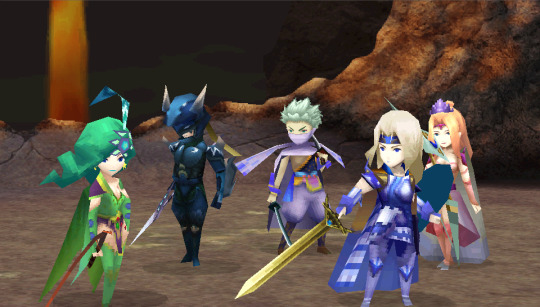
Now, the PlayStation One version has a FMV sequence that hasn’t aged well at all. We’re talking worse than the Final Fantasy and Final Fantasy II FMV sequences from PlayStation One. I can’t even find a good snapshot from Google Images, probably because nobody wants to look at them ever again. You can find it on YouTube though.
Story:
Final Fantasy IV is well known for being the first GOOD story in a Final Fantasy game. Cecil’s personal journey of redemption rung in the minds and hearts of audiences. There’s a nice balance of focusing on individual struggles and an epic adventure to save the world.
The cast of characters is pretty wide. Like Final Fantasy II, several secondary characters come and go. There is one difference but I don’t want to spoil anything. I guess the least I could say is that Final Fantasy IV subverts what to expect after having played Final Fantasy II.
Like Final Fantasy III, Final Fantasy IV includes crystals as an important plot device. This time they hold enormous power that the villain Golbez wishes to obtain for nefarious means.
While the story is infinitely superior in storytelling to Final Fantasy II, there are still some silly moments. I could best describe the bulk of the story as “Cecil and friends are on a race to capture each crystal around the world but something always gets in the way at the last minute.” While for the most part the story is done well, there are seemingly cartoonish moments involving random trapdoors and bewitched dolls. One particular moment I found myself thinking, "So you're just going to stand there while he does that?"
But I think the most admirable part of the story is how they approach Cecil and Rosa’s romance. While most RPGs, especially today, try to hash in a childish romance subplot, Cecil and Rosa are that rare couple that are already together at the beginning of the game. Their love is tested throughout the story.
The most popular quote from this game involves a complicated matter of translation. Western releases of Final Fantasy games (and Japanese games in general) often had awkward translations. “You spoony bard!” is one such awkward translation that originates from this game.
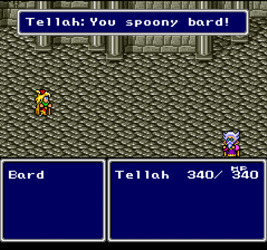
The character who spoke this line, Tellah, is arguing with the character Edward. The translation came out at “spoony” due to the Japanese writers believing it was still used today in English. It’s an archaic term meaning “enamored in a silly or sentimental way”. It technically fits, but clearly, nobody uses that word anymore, and players laughed at how nonsensical it seemed.
While I don’t want to spoil why Tellah is angry at Edward, the scenario in question is dramatic, and so Tellah saying “idiot” or “moron” wouldn’t quite suffice. The original Japanese word that Tellah uses is “kisama”, which in the given context is akin to telling someone they are a “son of a bitch” or “bastard.” Western releases, especially North American, were very often censored and demanded less or no profanity.
Overall, Final Fantasy IV is the first notable story in the Final Fantasy series, way better and much more original than Final Fantasy II.
Music:
With the Super Nintendo, Uematsu was able to play with more sounds. The drumming that Uematsu had wanted in his battle themes is more apparent. He also added an accompaniment to the Prelude. The main theme of Final Fantasy IV is scattered throughout the score, just like a motif in a movie score. The main theme is the map theme, and I like how, for example, the theme changes to a different beat when you venture into the underworld. The main theme even pops up in the final battle, which to me is awesome because it illustrates the heroes collectively trying to banish evil.
In one interview with Uematsu, he stated he was a huge fan of Elton John. For some reason, after I read that, I totally see the main theme of Final Fantasy IV having an Elton John vibe, especially in the epilogue with the drums and the bass.
Red Wings, which is the theme for Baron’s elite air force of the same name, is notable for its unorthodox time signature. I swore I read that somewhere years ago but now I can’t find it, so if someone happens to come across it – let me know. The theme for the Red Wings sounds both heroic and sinister, referencing Baron’s underlying motives and Cecil’s dual nature.
Cecil and Rosa’s love theme is actually taught for schoolchildren in Japan as part of their music curriculum.
Uematsu pretty much matured at this point, in my opinion.
Notable Theme:
There are so many but my personal favorite is “Dreadful Fight”, a.k.a “Battle with the Four Fiends”.
youtube
I’ll also highlight the “Theme of Love”, because it needs to be out there as the first love theme for the Final Fantasy series.
youtube
Verdict:
Hands down, the perfect place for a beginner. You want to start getting into Final Fantasy? Start with Final Fantasy IV. The gameplay is easy to pick up. The story is simple and straightforward compared to the rest of the series but still effective. To those having played the later games first, it could seem trite. Unlike most of the Final Fantasy games, the different re-releases can be quite offer a different experience due to the translations, graphical changes, and differences in difficulty. At the end of the day, I would say any 2D version is fine, the best is probably the PSP version, but save the DS remake for later, since it is more difficult.
Direct Sequel?
Yes. Final Fantasy IV: The Complete Collection was released on the PSP in 2011. This is the version that I played. Square created two sequels for that collection: Final Fantasy IV: Interlude and Final Fantasy IV: The After Years. I haven’t played them myself yet, but there is criticism surrounding their stories, which apparently pale greatly in comparison to Final Fantasy IV.
By the way, the PSP version starts by showing the new FMV opening to Final Fantasy IV: The After Years, not the one shown in Final Fantasy IV DS. That’s a minor change but it really irked me, because the sequel’s FMV opening therefore spoils some of the story if you never played it before. I guess they wanted to distance themselves from Final Fantasy IV DS. Even so, why not just play that opening when you select The After Years?
#final fantasy#final fantasy iv#cecil harvey#rosa farrell#nobuo uematsu#square enix#onvideogames#video games#rpg#video game rpg#fantasy
39 notes
·
View notes
Note
Asking because I’ve seen you say it on here: What is it that you disliked about Mahifiruze and Aysë as characters (writing or otherwise?)
It's not a problem of sympathy alone, because while these characters have quite a few offputting qualities and have certainly done some heinous deeds, it would be unfair to judge them only by that. There are way worse people in the franchise, which turn me off way more, after all. (*cough* MCK Turhan *cough*) Sympathy-wise, I'm overally ambivalent towards both Ayşe and Mahfiruze and if we only take that into account, I can take or leave them. It's their writing, however, where things take a different turn. Almost everything went wrong there.
The critical problem I find with both of the characters is that they're engrained in one and the same character archetype the writers refuse to get them out of. That brings harm not only to their characterization and the way they're built up, but also to the sympathy we're supposed to feel for them, because, more often than not, it didn't have a ground to stand on. It's true that archetypes often risk to make a character bland and one-dimensional, but the way they went with it is strange and unfortunate, because this all could've been averted quickly.
Magnificent Century's character core is mostly built on archetypes of a soapy drama and Magnificent Century: Kösem seemed to be following that trend. I understand that choice, in a way, because well, it could've just been easier for them, they could've thought they would win their former MC audience once again, playing it "familiar" and "safe". Thing is, the whole franchise overally does pretty well with archetypes: they either subvert them, deconstruct them or break them entirely later, either (in the case of MCK where we saw many previously established MC archetypes) use them with some core conceptual changes and a different theme in mind, which, as far as writing goes, worked very well with many characters. (see: Dervish - Ibrahim; Dilruba - Mihrimah; Atike - Mihrimah; Davud - Rustem, etc.) The thing is though, the writers didn't give Ayşe and Mahfiruze any of that and their archetypes felt like they only were in the beggining line, going almost nowhere beyond that and making the characters feel very often as cardboard cutouts as a result. They're going with archetypes, but they somehow give only a single fraction of these archetypes to figures that play a relatively big role in the story.
Comparisons to other usages of the character archetype of Mahfiruze and Ayşe's help even less, because everything now not only turned out to be a bad concept, but and a shaky, underdeveloped attempt at something done way better before. Mahfiruze and Ayşe both fit in Mahidevran's early season 1 archetype - the rejected, jealous woman, previously valued and loved by the Sultan, which loses everything quickly, planning and ready to do anything to take the rival down, including petty sneers, irrational decisions and will for murder. But even at its worst, Mahidevran's characterization was balanced overall, having moments where we could sympathize or condemn her respectively and had character fleshing out come to the surface as often as the reducement to this one sole archetype, which was lacking severely in Ayşe and Mahfiruze. I'll talk about the similarities they share with Mahidevran only briefly when I analyze them, because I'm admittedly very biased when it comes to this (especially with the double standarts I encounter with the YT comments, where the same people judge Mahidevran and Ayşe by the exact same metric and yet, they love one and can trash the other all day, eh.) and I don't want that to take over the topic at hand so much.
Mahfiruze has the problems I listed above to a much lesser extent than Ayşe, but that doesn't mean they're not present at all. She has a very familiar character role and personality - she is a mother to the eldest heir of the throne and gives jabs and insults to her rival. And.. that's all there is. It's undeniable than Dilara Aksuek's Mahfiruze definetly had a tough act to follow, since the former Mahfiruz screamed potential and promise the latter character was expected to fulfill, but they did the barest possible minimum. (and I don't think Dilara's a bad actress by any means: she acted amazingly in the show Istambullu Gelin as Ipek, an arguably similar and much better written character.) It definitely felt as more of a regression than a progression, because Mahfiruze had no fleshing out or development at all. Her meanness to Kösem seemed central to her character, she barely had any interactions with the rest of the cast and what is worse, used her as a plot device for a plot-line with Ahmet's enemies and then when her role was fulfilled, they.. killed her off just like that without any warning or elaboration. She was the very definition of a one-dimensional obstacle to Kösem that seemed to exist only for the sake to be an obstacle to Kösem. It was as if she didn't matter. And when she did, it was only as a narrative instrument to stir the conflict between Kösem and Osman (which I find very interesting, but I feel it would've been way more impactful if Mahfiruze wasn't only... this.) It was as if the writers ran out of stuff to do with her, which is a very lazy copout for me, because she could've had interesting storylines, if only they just wished to "shake up" the traits of her archetype for a bit.
Ayşe's character is where this repetitive problem shines through the brightest. We can argue that the love triangle plot and Farya's Mary Sue stance ruined it all for her from the get go, but for me, the foundation of her character is what truly did. Ayşe wasn't used simply as a plot device as much, she wasn't even underutilized at all, she was put into an archetype which undermines how different she is as a character in practice and the greatly dissimilar circumstances she's under. They tried to fit Mahidevran's S01 archetype in an environment it would never do in the first place. It not only becomes a stagnant, more over exaggerated repetition of a concept and forces unnecessary drama to prop another character up, it way too often puts a sole angle of Ayşe's character into focus, making Farya the center of her writing. Not to mention that for long, we didn't have a cohesive reason to root for her, her early love for Murat being the thing that was the least fleshed out about her and could make her too obsessive and yandere at times. Her interactions are criminally underdeveloped, as well, and unlike Mahfiruze, that could honestly be cut shorter except for Osman, they were something Ayşe desperately needed. We got only hints of her relationship with Kösem, Silahtar and Gevherhan and that was far from enough. Most of her scenes were either with her maid or Farya. Her alliances with Gülbahar and Sinan respectively were... fine interarion-wise, to be honest, but writing-wise, they only enforced the fairly consistent endorsement of the soapy aspect of her character beyond any measure.
Now, I can't doubt the development in her later episodes, where the writing admittedly improved. I'll always love her scene before the death of Gevherhan and her message to Murat, because that's the Ayşe I wish I saw more often. The self-awareness she gained of how Murat screwed her over was amazing and something I wish happened more gradually and over the span of more episodes. But it was all somehow "too little, too late" for me and it didn't completely save her messy writing. And it's a crime, because Ayşe played a much bigger role than Mahfiruze in the narrative, she was basically a main character and she got robbed of a good, organic fleshing out and arc.
Ayşe was the most egregious example of the severe flawed writing of repetitive archetypes and catch me forever mad about it, because she could've been much more. It's a mistake that had no business being there at all. And it was anyway.
#magnificent century#magnificent century kosem#magnificent century kösem#ayse sultan#mahfiruze sultan#ask#stuffandthangs
17 notes
·
View notes
Text
Killing Eve: Episode Analysis
*SPOILERS*
Season 1, Episode 5 - I Have a Thing about Bathrooms

The episode picks straight up from the end of S1E4, when Villanelle is chasing and shooting at Frank. Eve stops the car to confront Villanelle, who is visibly shocked that Eve had the courage to confront her (especially since Villanelle had a gun), and because this is the first time they’re seeing each other in person since meeting in the hospital toilets.
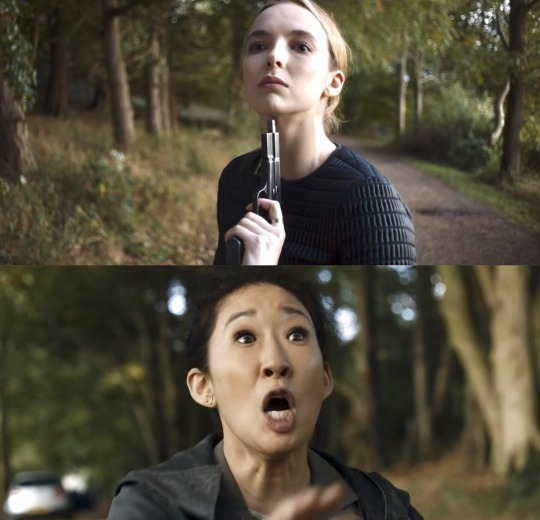
When Eve gets out of the car, she puts one hand up to show Villanelle that she isn’t going to hurt her, and she puts her other hand on her heart, as if to show her care and concern. Almost as if trying to test to see if Eve is genuine that she cares for her, Villanelle puts the gun to her head, and Eve’s immediate “no!” confirms this to her. (Or this is just more emotional manipulation like we get later in the kitchen scene)
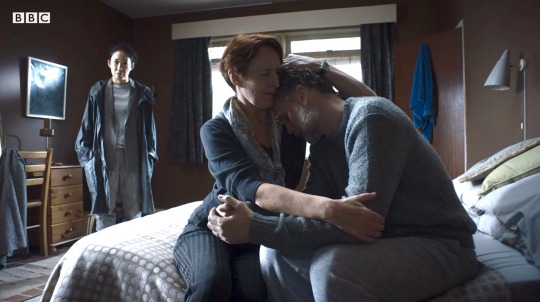
When Frank is being shown around his safe house, he is shown where the bedroom is and told “this is where the magic happens”. Unfortunately for Frank this is foreshadowing to him getting killed by Villanelle in the bedroom.
While Frank is telling Carolyn and Eve about The Twelve, he says that their aim is destabilisation and when Eve asks “to what end”, Frank simply says “chaos”. This is referenced back to in S3E7, when Hélène tells Villanelle that she loves her because she is an “agent of chaos”.

In the scene when Eve is at the bus stop, the first thing she does is take out her hair, so we can assume that Villanelle is on her mind. Eve sees a crack in the glass of the bus stop and presses it with her finger, it doesn’t break and so she proceeds to smash the glass with her elbow.
The glass with the crack represents Eve. The crack symbolises something that has always been within Eve, her darkness and impulse and desire around killing. Eve manages to keep it together though (shown with the glass, when she presses the crack with her finger but it doesn’t break yet), she often feels the pressure from herself and of her darkness pushing to overcome her, but she won’t let it break her or become too unmanageable. She also represses the existence of the crack (the darkness), but it’s something that Villanelle saw in Eve from the beginning; it’s what she thought made Eve “special” [S2E8] and why she was so upset when Eve rejects both the darkness and her (just like Villanelle’s mother did). The pressure on the crack in the glass is also being put on by Eve herself, again reminding us why Villanelle was so upset with Eve, telling her “it’s what you wanted”; and Villanelle is right, it is what Eve wanted deep down but she’s in denial and won’t accept it and so blames Villanelle, its not until S3E8 that she’s willing to accept her darkness.
However, now Villanelle has come into Eve’s life and she’s aware that Villanelle will be the elbow to the crack in her glass. As they discuss on the bridge in S3E8, Eve can feel the control of her “monster” slipping away from her as Villanelle’s monster encourages her’s.
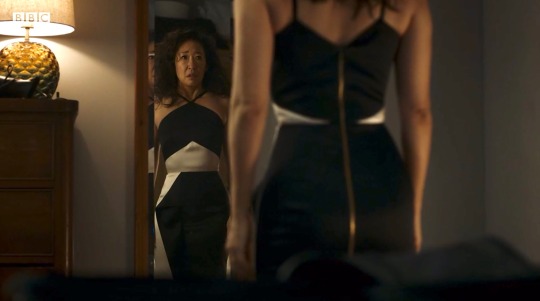
Eve goes on to take her suitcase, with all the things that Villanelle packed in it, back to her house and has another look at what was put in it. Eve can see that all the clothes and the shoes are her exact size, which is one of the things that drives her to put the dress and shoes on - here is someone who sees Eve, knows her so well and has paid such attention to detail to her from the brief times she’s seen her, that she gets clothes that she knows suit Eve and fit her perfectly. Considering Niko got her a scarf she doesn’t even like, and doesn’t seem to know her style well at all, to have someone pick clothes and shoes that are so perfect for her seems to be incredibly attractive to Eve.
Eve again takes hair hair out when putting on the dress, shoes and perfume from Villanelle. When we see her put on everything that Villanelle gave her and take out her hair, and when she looks at her reflection in the mirror, she is completely an image of exactly how Villanelle wanted to see her. Eve looking at herself in the mirror also shows how she wants to see herself in the way that Villanelle wants to see her.
Unloved’s, ‘(Sigh)’, which plays during this scene of Eve trying on the dress also reflects how Eve is feeling in this moment. The lyrics are:
“There’s something about
The way you are
That makes me (sigh)”
The lyrics reflect Eve’s mixed emotions about Villanelle and her confusion in dealing with them. The word “something”, as well as the *sigh* (the feeling can’t even be expressed with words - only a longing sigh), shows how there’s just this mysterious thing that Eve can’t put her finger on that’s dragging her closer to Villanelle. She feels this unrelenting attraction to an assassin, and not just a assassin, but one that killed her close friend and co-worker - Villanelle is someone she should hate with no question, yet she can’t.
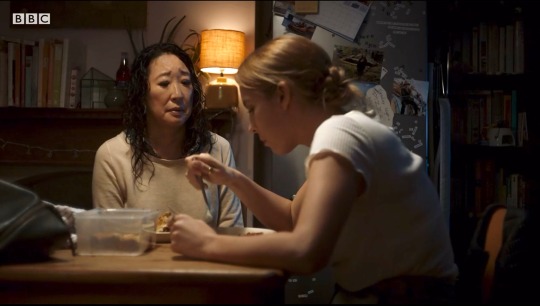
We then get the long awaited proper first meeting between Eve and Villanelle, the kitchen scene.
The entire scene is a power play between the two women as they assess the situation, and each other, after spending the whole season so far obsessing about each other from a distance.
It obviously begins with Villanelle, who has surprised Eve in her safe space, in the position of power. She tells Eve she wants to have dinner with her and to change out of the wet dress, saying “I won’t look”, but then proceeds to look anyway and helping her out of the dress, adds “you have a nice body”. From this we can see that Villanelle makes it clear to Eve from the beginning that she’s attracted to her; but Eve is the one who won’t take it further, until the kiss in S3E3 which is one of the reasons why Villanelle is so shocked - Eve initiated the intimacy this time.
When Eve asks Villanelle why she’s come to her house, she tells Eve “I need someone to help me. I don’t want to do this anymore. I know what I am. I know I’m not normal... I don’t feel things that... I don’t want to hurt people”. What Villanelle says is an attempt to manipulate Eve, but Eve sees straight through the act saying it’s “bullshit”, which surprises Villanelle. However, given the events of Season 3, there is some truth to what Villanelle is telling Eve, as everything she said becomes true for her later on. In the exact same words as she used in this scene, in S3E6 Villanelle tells Dasha “I don’t want to do this anymore”, but the second time she says it she says it entirely sincerely.
Eve also tells Villanelle “I know something happened to you”, which contrasts with the tea dance scene in S3E8, where Eve instead asks Villanelle “what happened?”. Eve goes from being entitled to Villanelle and having a certainty in what she thinks she knows about her, to understanding and being considerate of her feelings much more. When they meet at the tea dance in S3E8, Eve is listening to what Villanelle is saying to her and can see she’s upset and so asks her a question, giving her the opportunity to share what’s bothering her if she wants to, rather than trying to make a statement about what she thinks she knows happened to her.
Villanelle does the same thing with Eve in this kitchen scene, as she does with Hélène in S3E7. She replies to Eve’s request to tell her more by first saying “okay”, but then diverting and saying “can we get one thing clear before we go on with this? Is that a sweater attached to a shirt?”. Similarly when Hélène asks Villanelle “has something happened recently?”, Villanelle first says “I did something bad to my mother”, but then in the same way as with Eve, only follows up by saying “I took a shit in her shoe when I was three”.
In the tea dance scene in S3E8, before they were interrupted by the man encouraging them to get up and dance, we can also see that Villanelle looked like she was about to answer Eve’s question, illustrating how much Eve and Villanelle’s relationship has developed emotionally, especially for Villanelle who doesn’t open up to anyone. She becomes more willing to discuss her feelings with Eve than the emotional guardedness we get in this scene, as both women are just trying to gauge the other.

When Villanelle smells Eve, she asks her “are you wearing it?”, which again shows us how she reuses things she’s heard or observed, as it’s exactly what Sebastian asked Villanelle in S1E2.
Eve also makes a comment to Villanelle telling her “I am going to find the thing you care about, and I am going to kill it”. Hopefully this isn’t foreshadowing for the coming seasons, that Eve is the thing that Villanelle cares about and so ends up being killed.
Another small but impactful moment is Villanelle telling Eve “I will eat anything”. Continuing with Killing Eve’s aim of subverting audience expectation and going against gender stereotypes, Villanelle is an attractive woman but also an enthusiastic eater. She eats a lot in the show and more importantly when she does eat, she isn’t just eating a salad. Usually in film and television woman aren’t shown eating, or if they are, they’re eating some sort of salad or a tiny unsubstantial meal to maintain the idea that they’re dainty and trying to keep slim and attractive. So to have a female lead character who is so strong and attractive, heartily eating all this food and enjoying it, shows the audience that a woman can indulge in her food and doesn’t have to be depicted eating one lettuce leaf to have these qualities.

A funny little detail - Carolyn tells Eve her dog is called Martin, that means her dog’s full name is Martin Martens.

When Villanelle goes to kill Frank, she tells him that she’d prefer to kill him in the bathroom rather than the bedroom, saying “I have a thing for bathrooms, actually”. Villanelle has a thing for bathrooms because she has just come from Eve’s house (where they fought in the bathroom), and the bathroom of the hospital is where her and Eve first met.
Villanelle also warns Frank, telling him “don’t get me excited”, when he tries to fight her off with a chair. This is confirmation that Villanelle can get excited, making her kills more violent, like when she killed the hospital room of people after she met Eve in the toilets.
You can read my previous Killing Eve posts here:-
First Introduction to Villanelle
First Introduction to Eve
S1, E1 - Nice Face
S1, E2 - I’ll Deal With Him Later
S1, E3 - Don’t I Know You?
S1, E4 - Sorry Baby
S1, E6 - Take Me To The Hole!
S1, E7 - I Don’t Want to Be Free
S1, E8 - God, I’m Tired
S2, E1 - Do You Know How to Dispose of a Body?
S2, E2 - Nice and Neat
S2, E3 - The Hungry Caterpillar
S2, E4 - Desperate Times
S2, E5 - Smell Ya Later
S2, E6 - I Hope You Like Missionary!
S2, E7 - Wide Awake
S2, E8 - You’re Mine
S3, E1 - Slowly Slowly Catchy Monkey
S3, E2 - Management Sucks
S3, E3 - Meetings Have Biscuits
S3, E4 - Still Got It
S3, E5 - Are You From Pinner? [Part 1]
S3, E5 - Are You From Pinner? [Part 2]
S3, E6 - End of Game
S3, E7 - Beautiful Monster
S3, E8 - Are You Leading or Am I? [Part 1]
————————————————————————————————————————
#killing eve#killing eve season 1#killing eve episode analysis#1x05#ke#villanelle#eve polastri#villaneve#killing eve analysis#killingeveedit#movies#film#cinematography#tv reviews#reviews#good tv#tv recommendations#killing eve spoilers#killing eve discussion#ke analysis#killing eve 1x05#killing eve S1E5#killing eve I have a thing about bathrooms#phoebe waller bridge#jodie comer#sandra oh#scene breakdown#niko polastri#carolyn martens#konstantin
73 notes
·
View notes